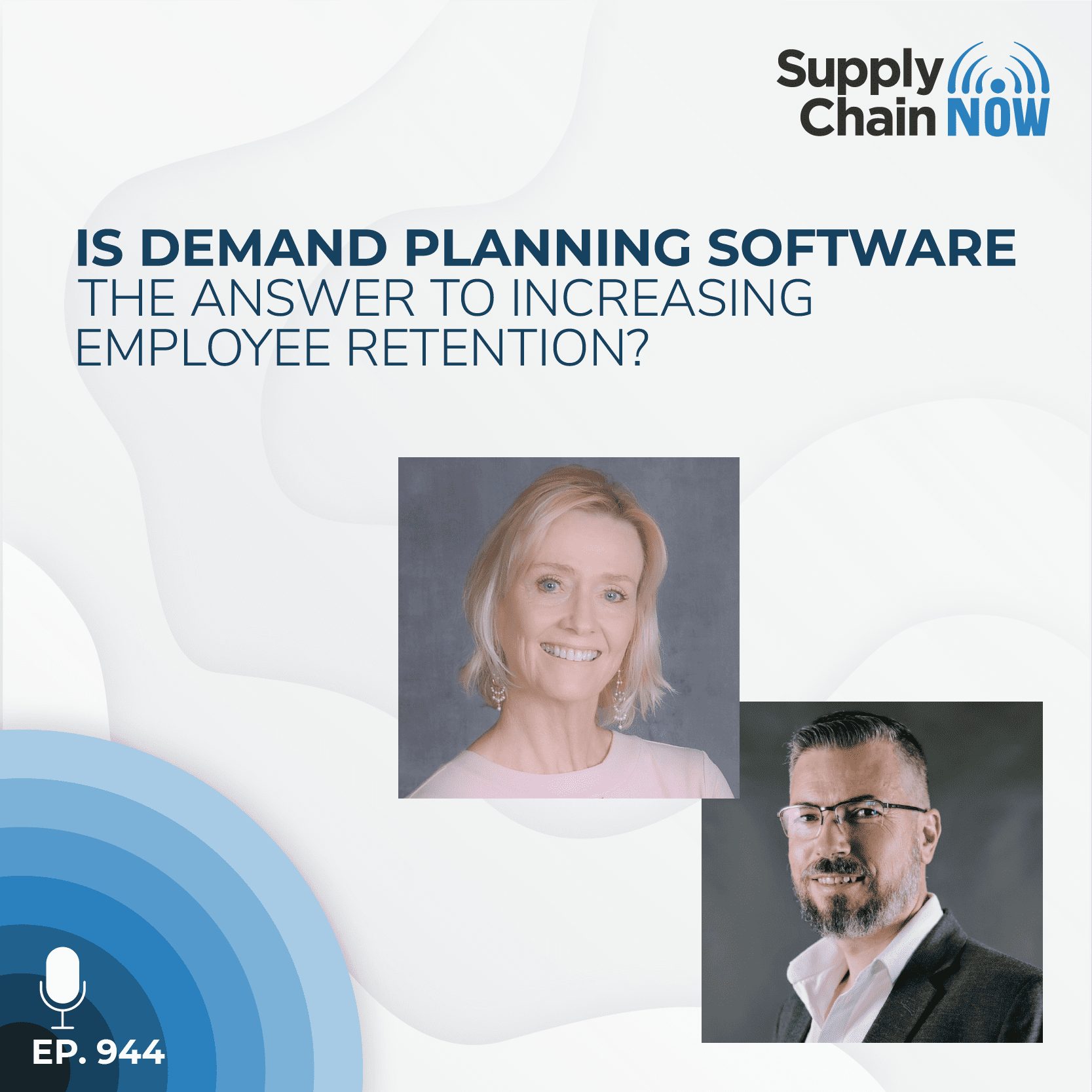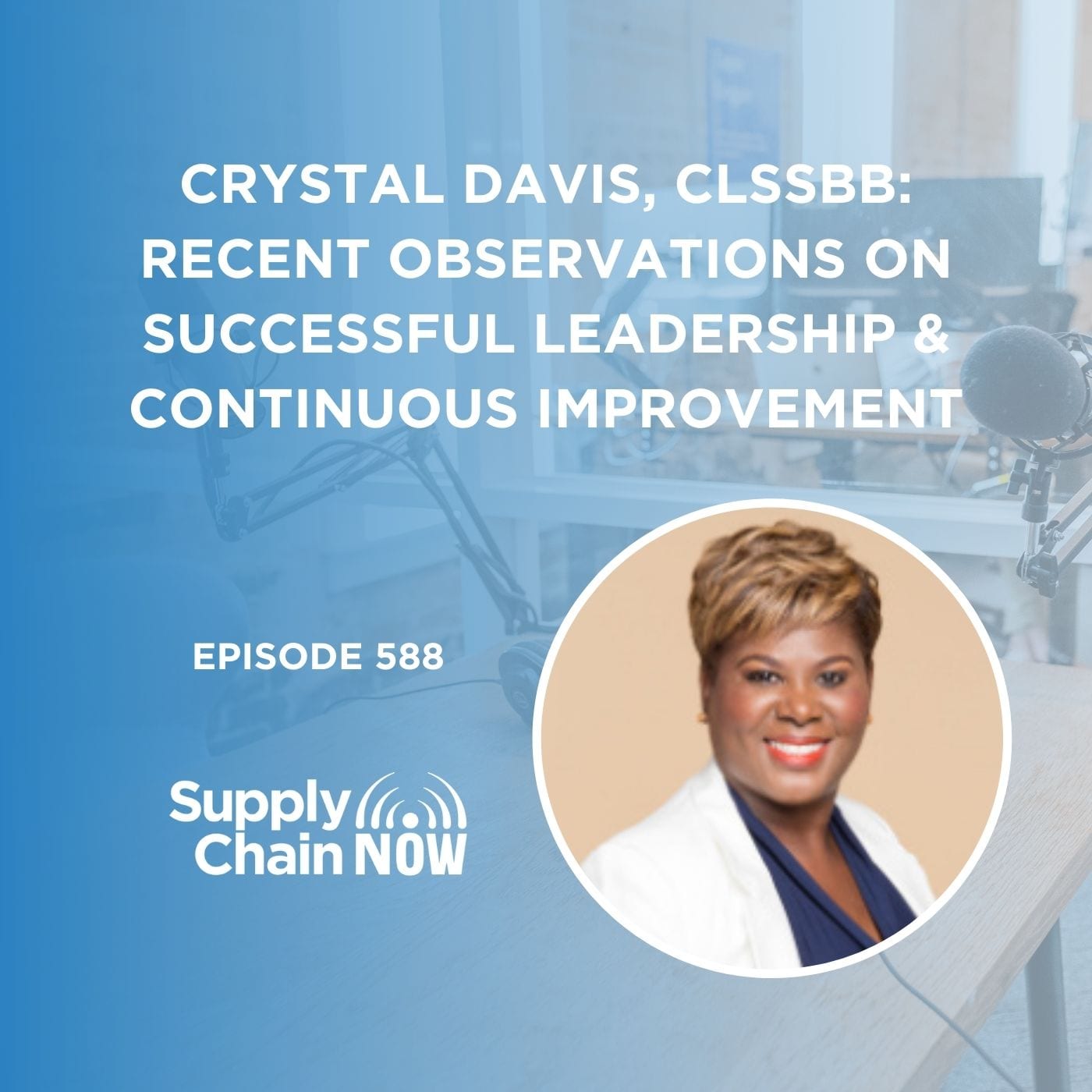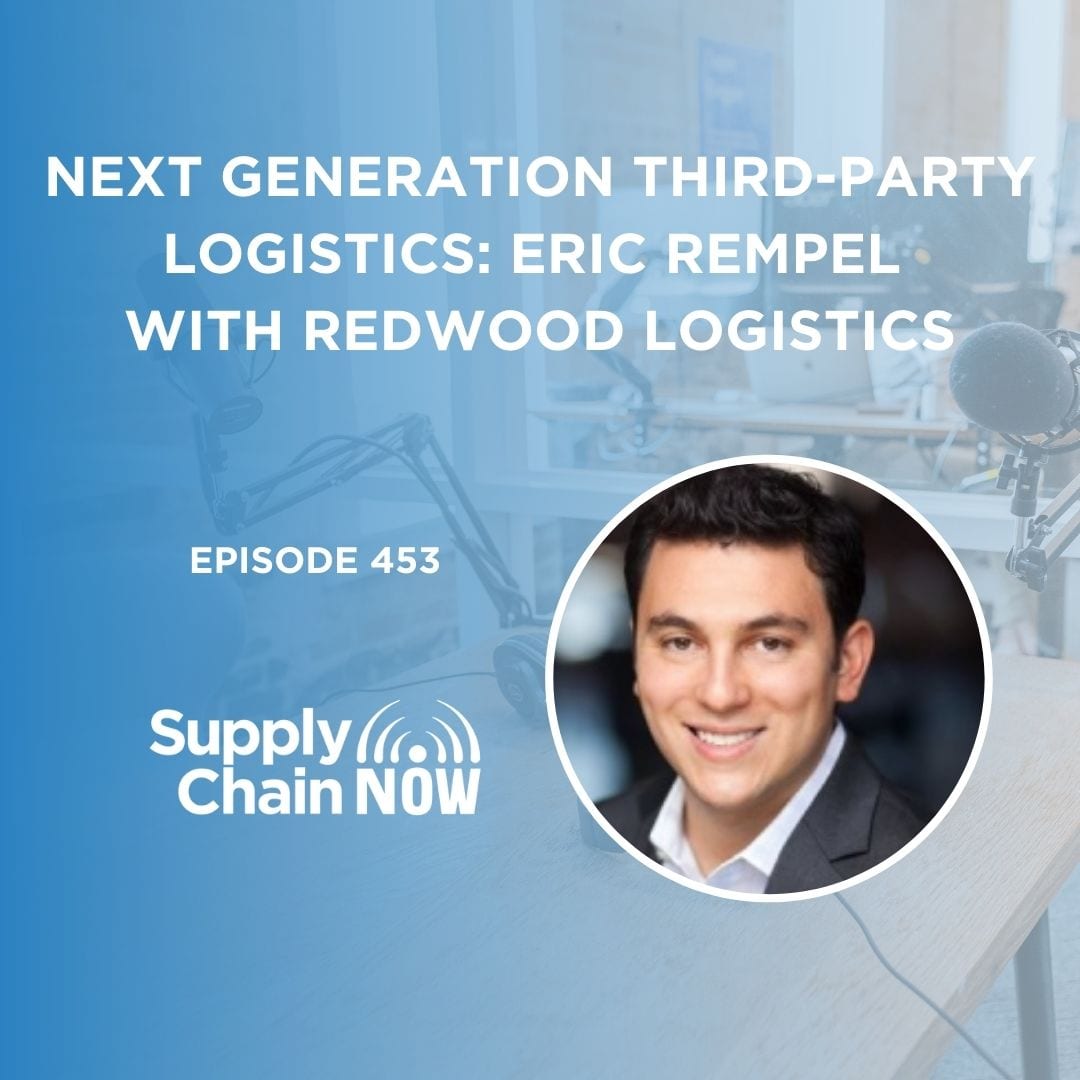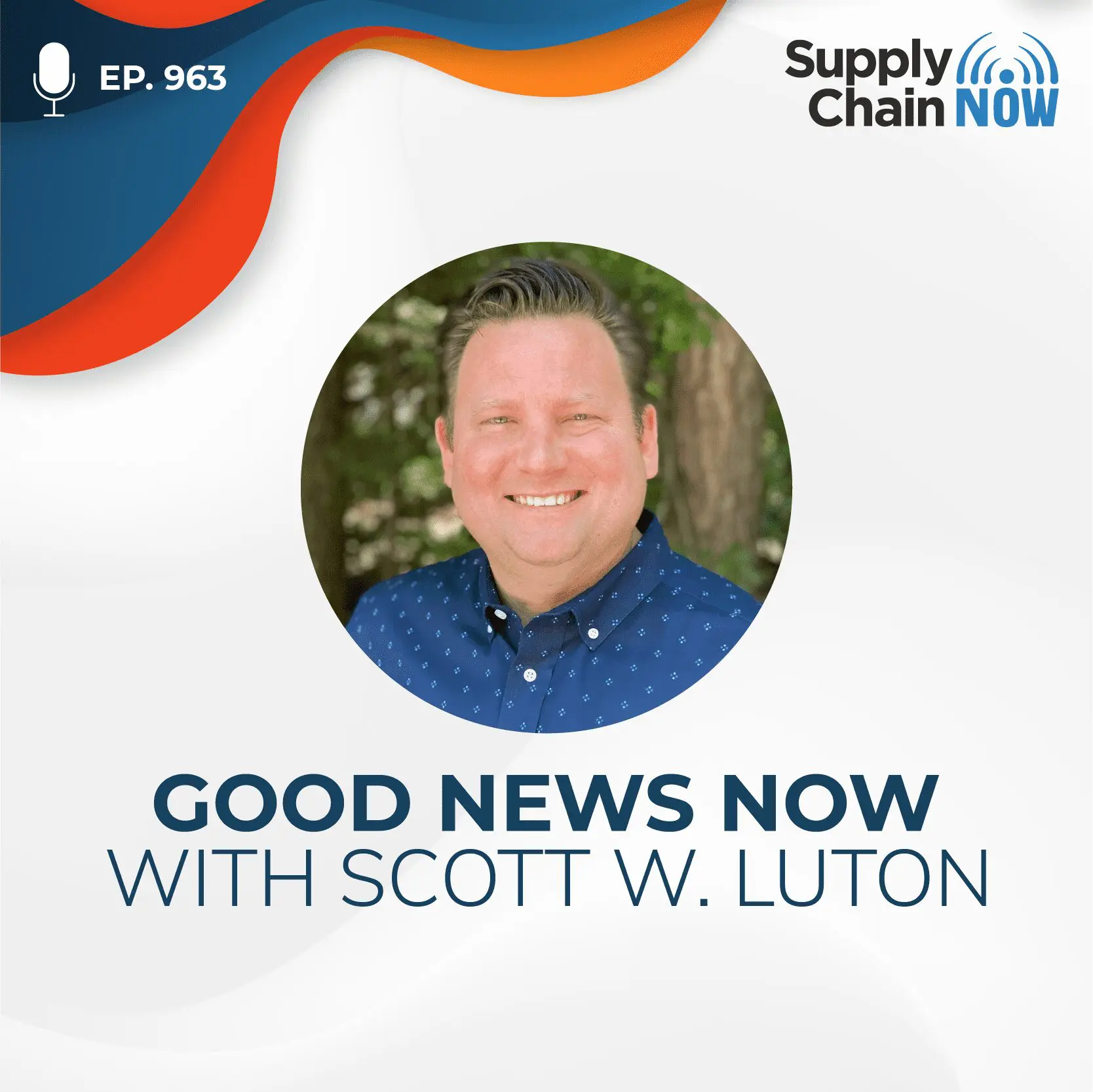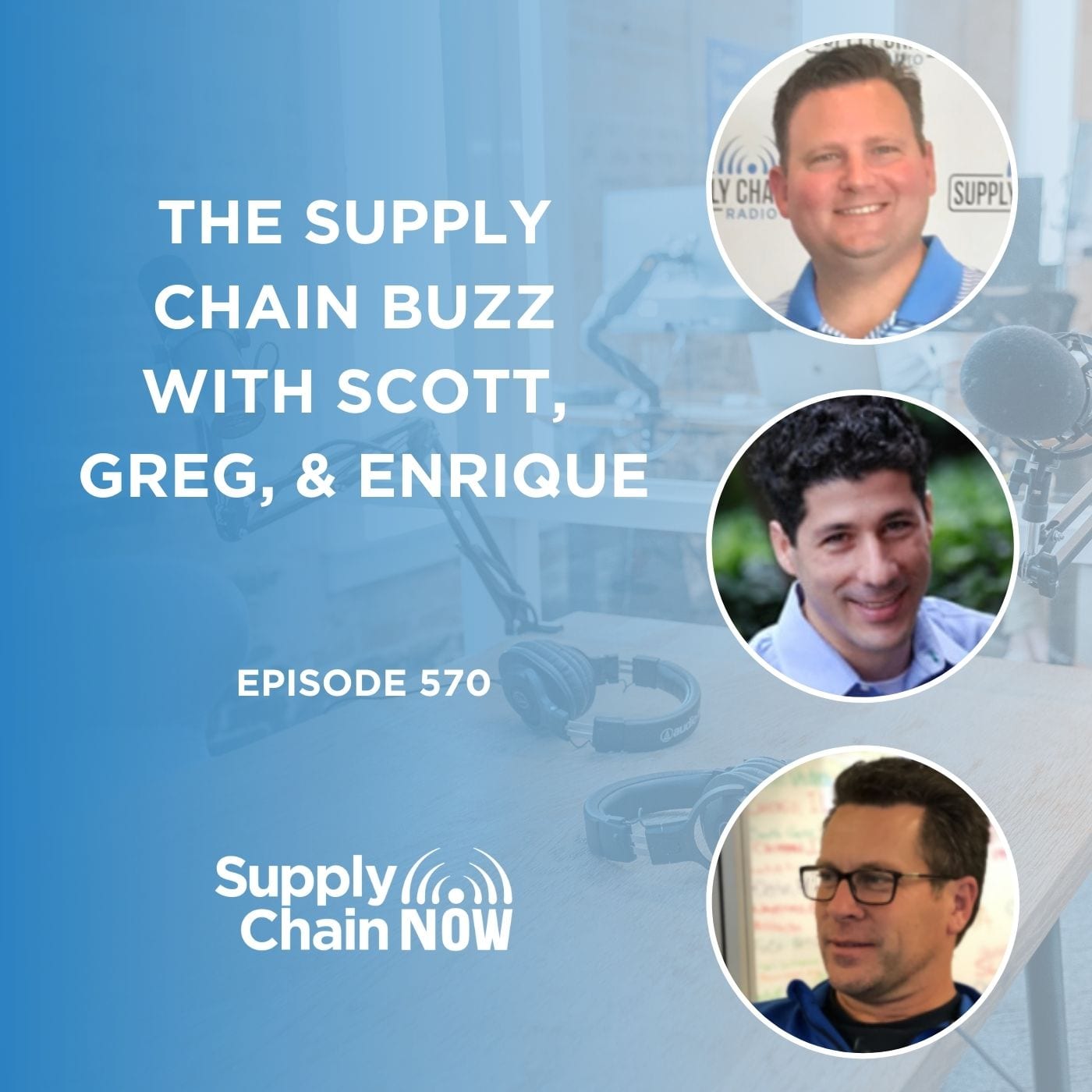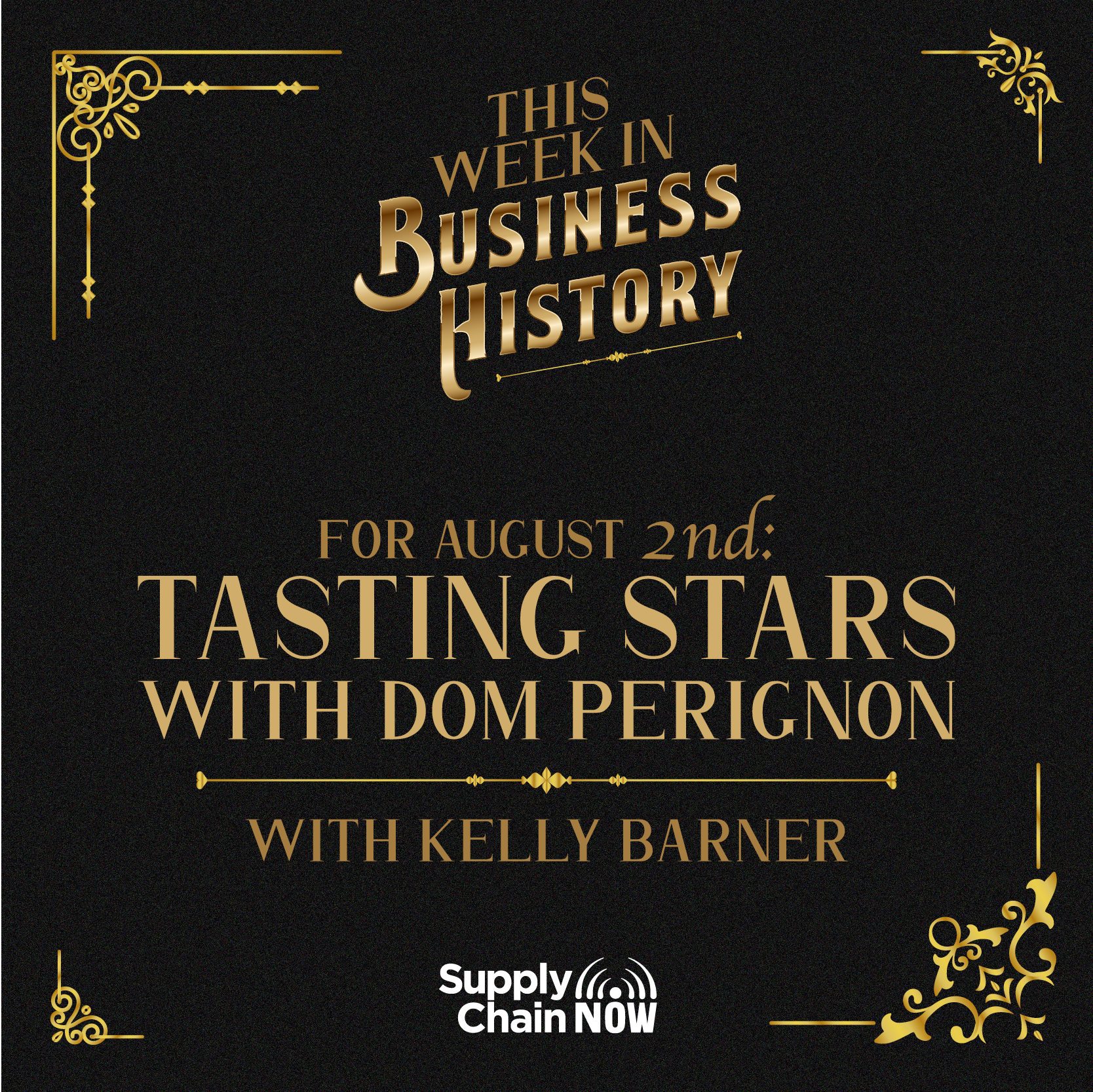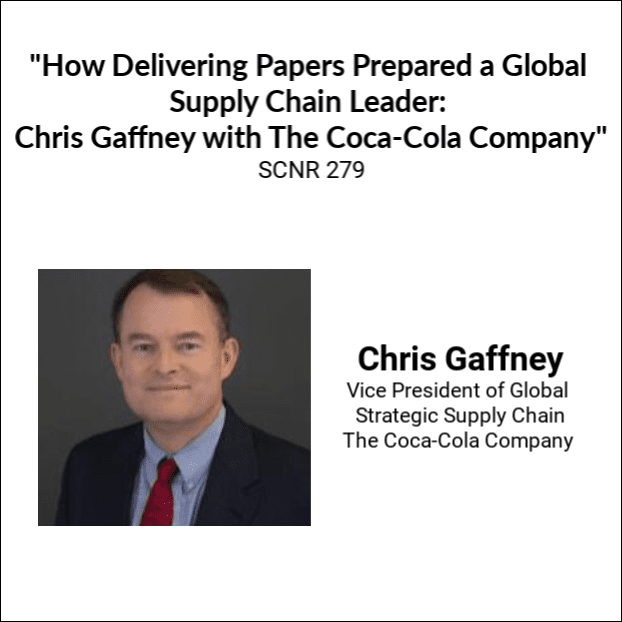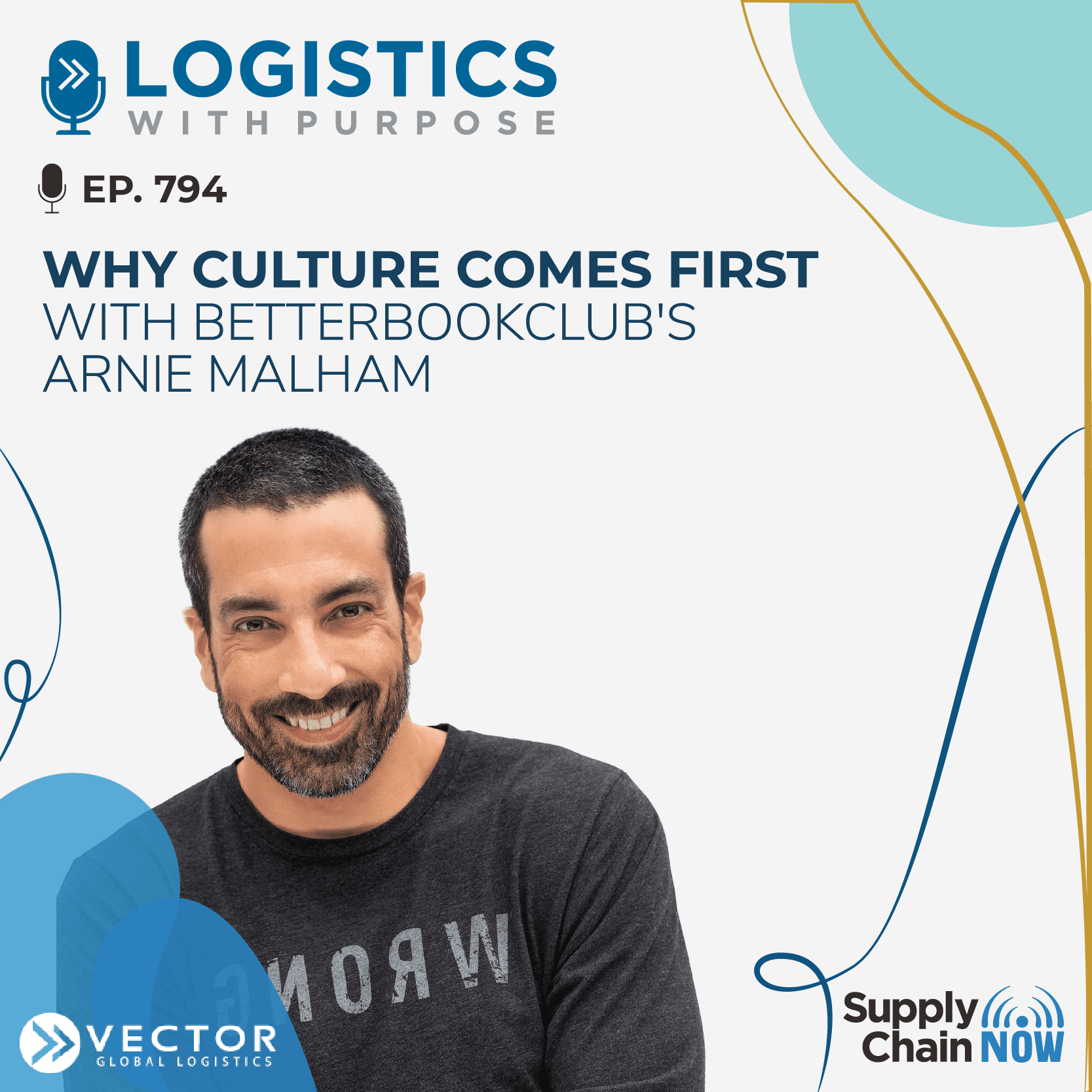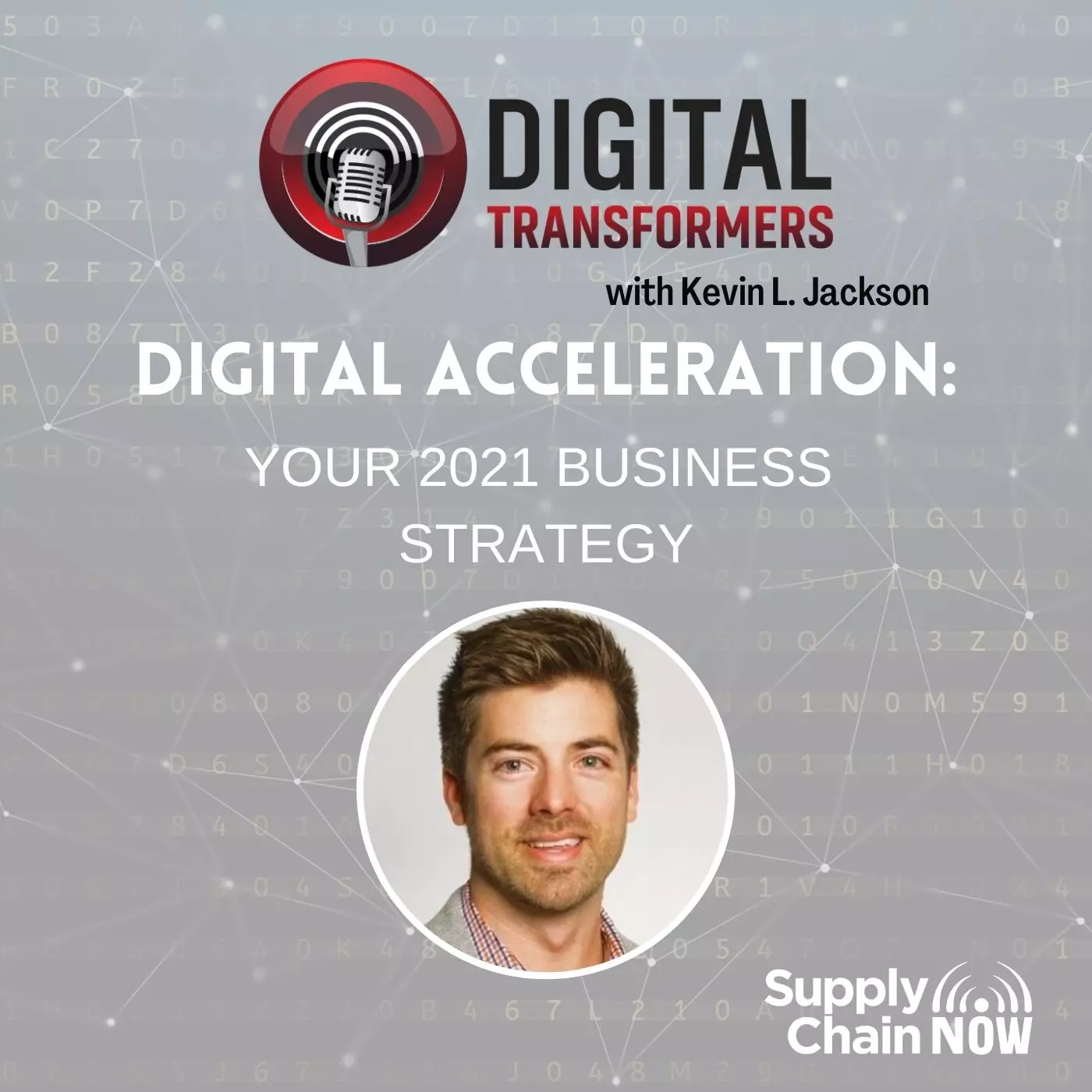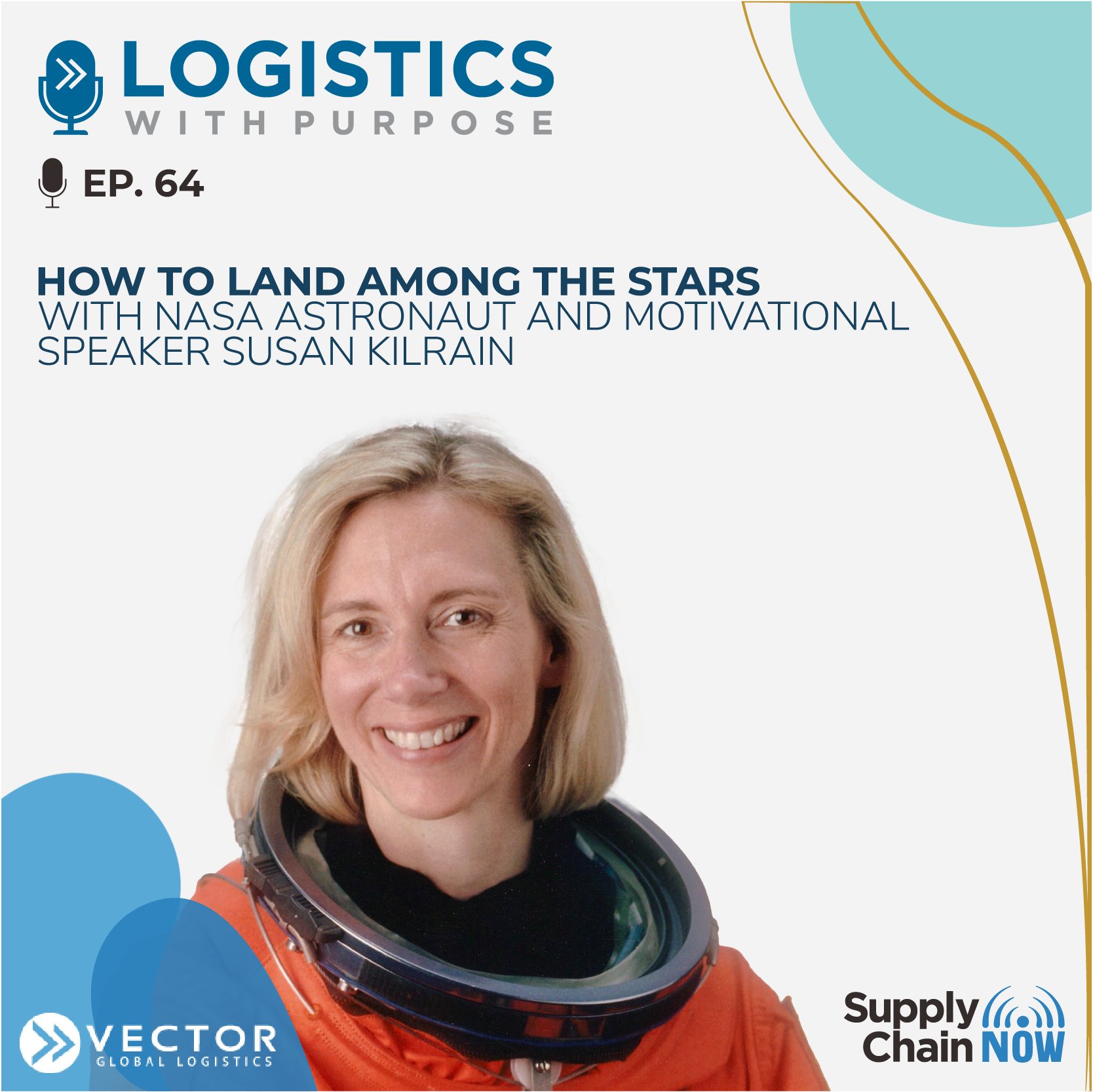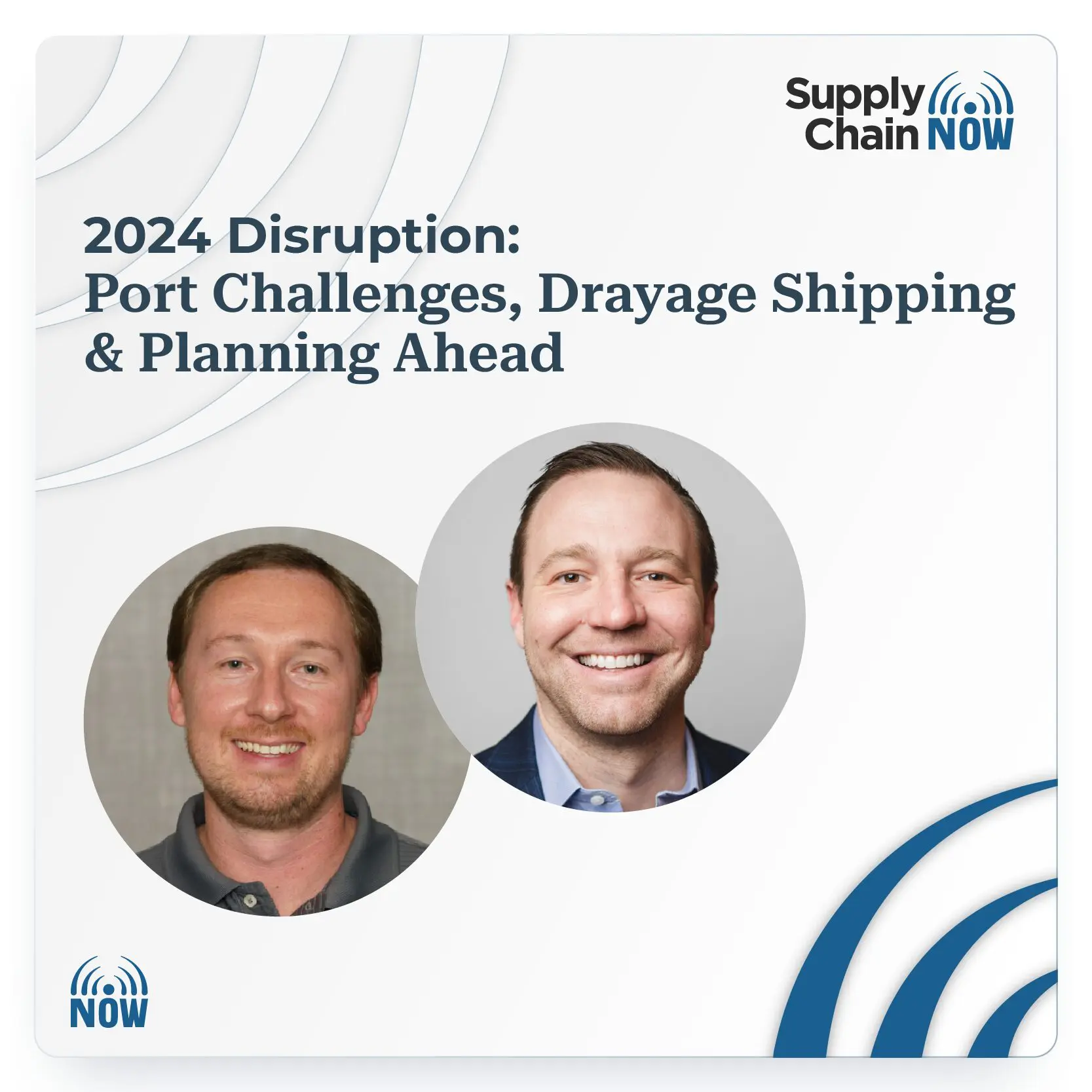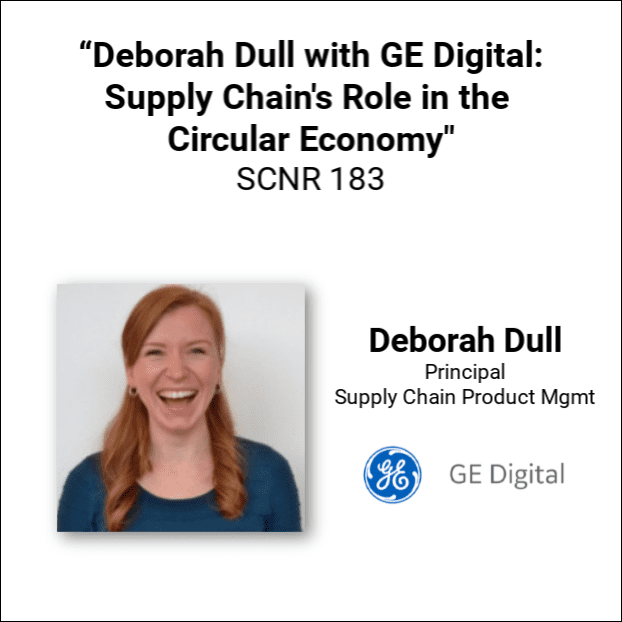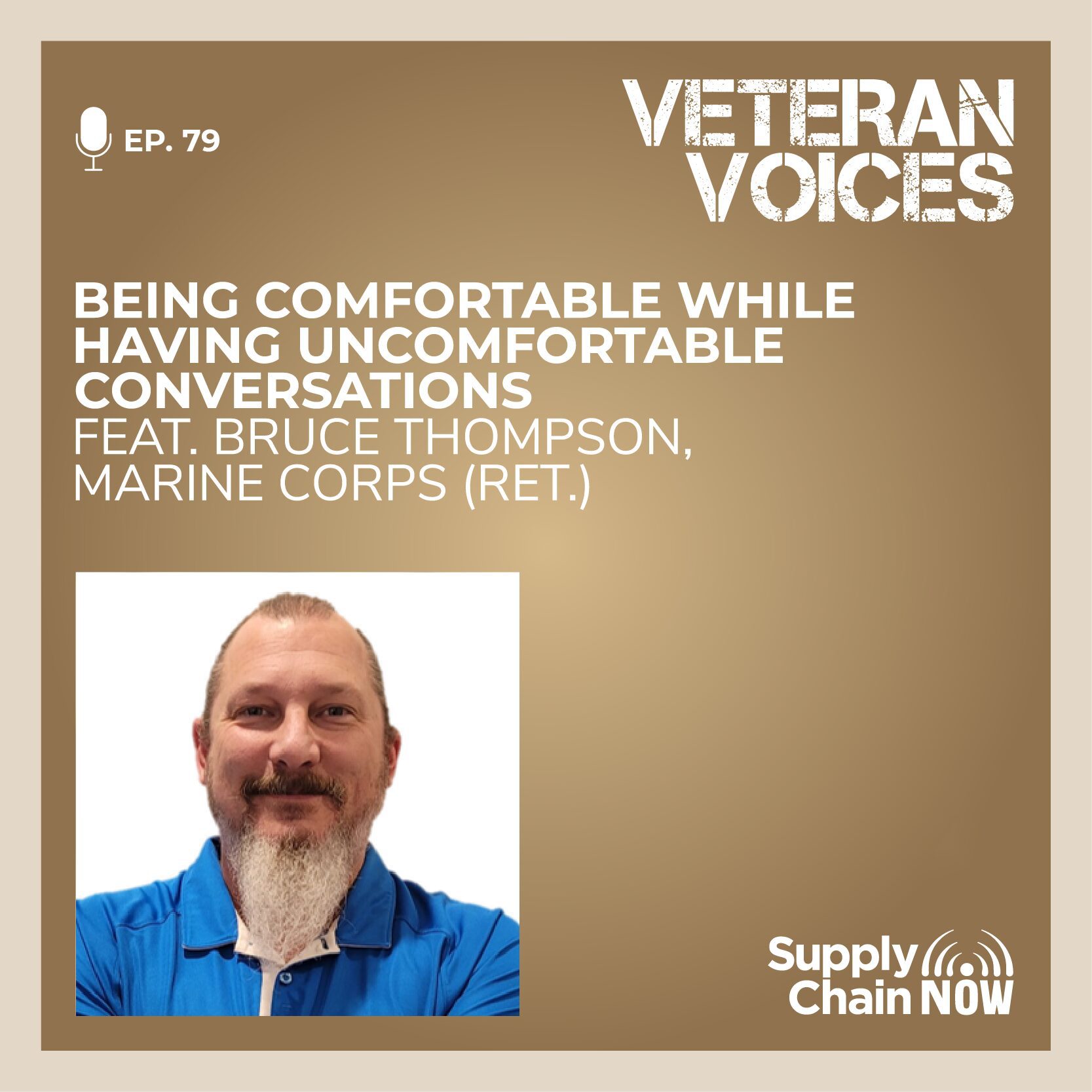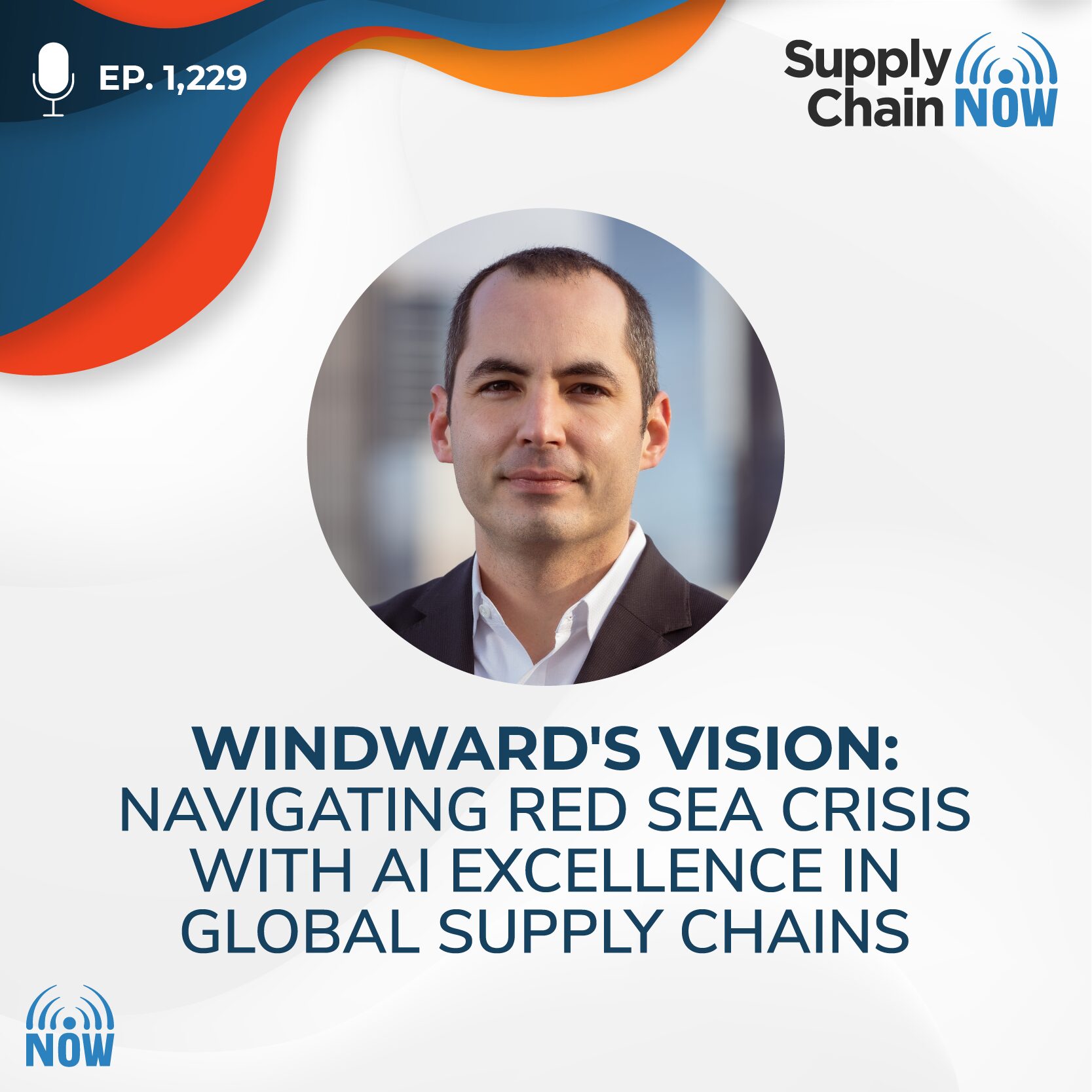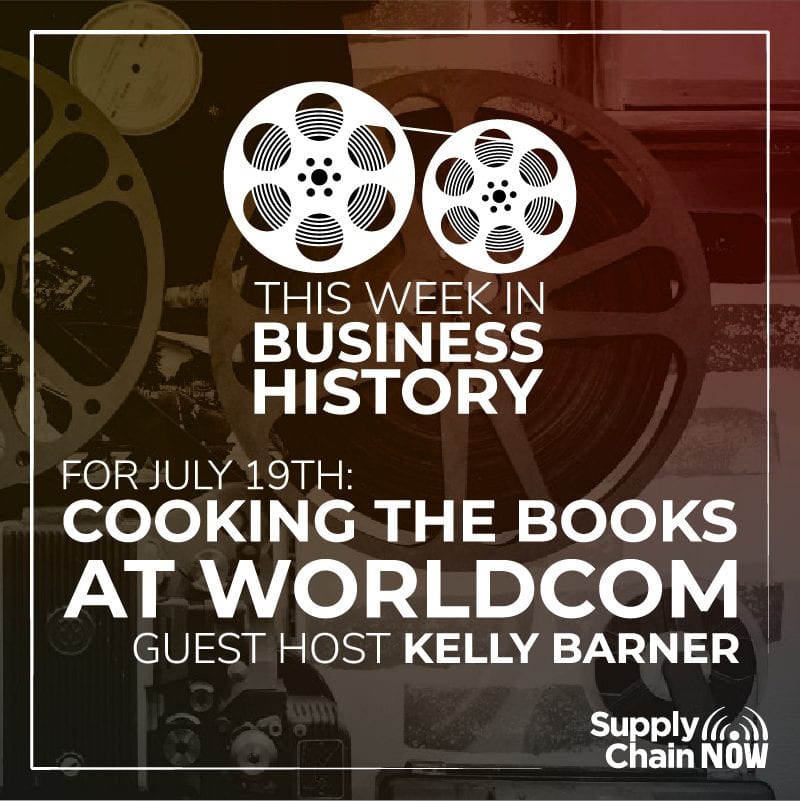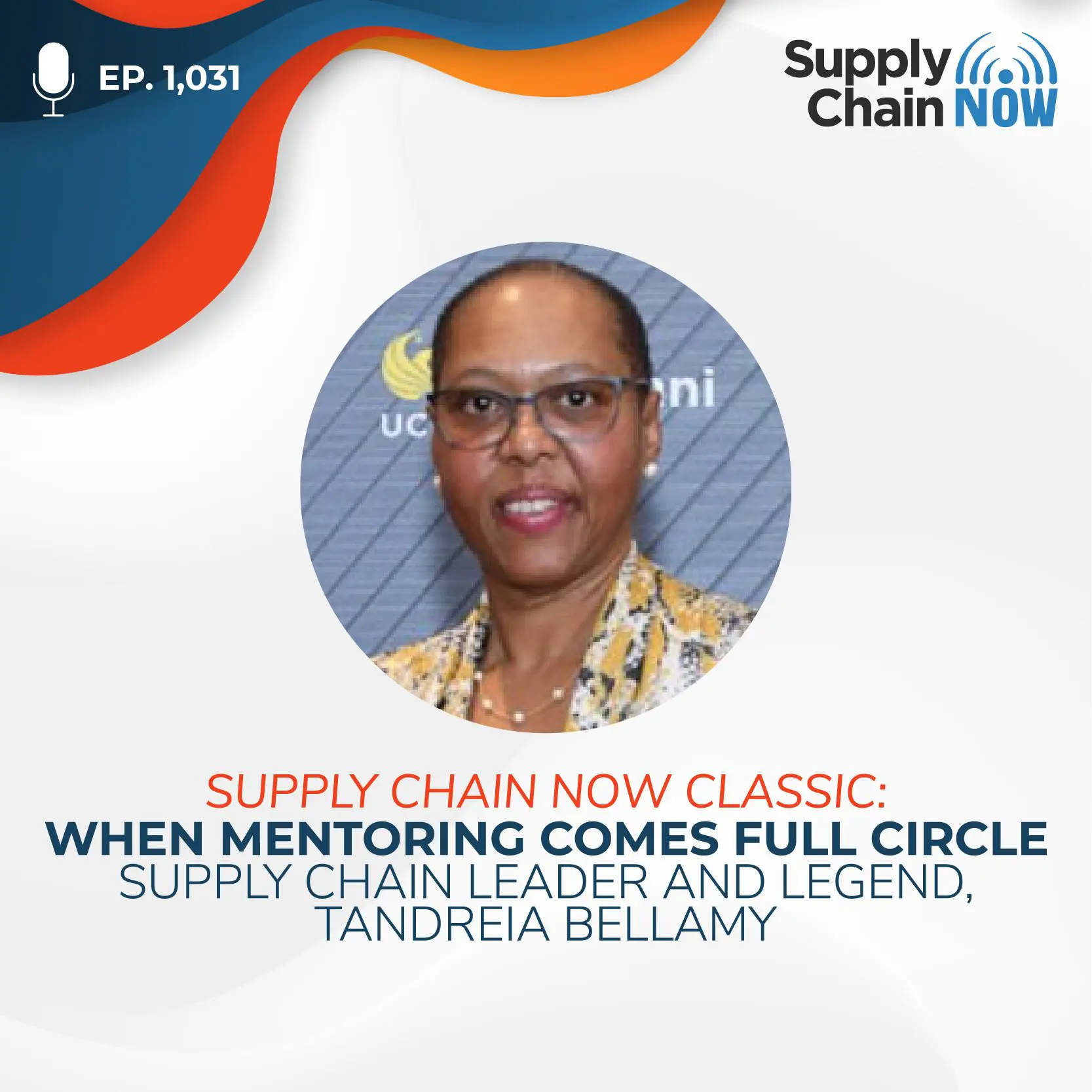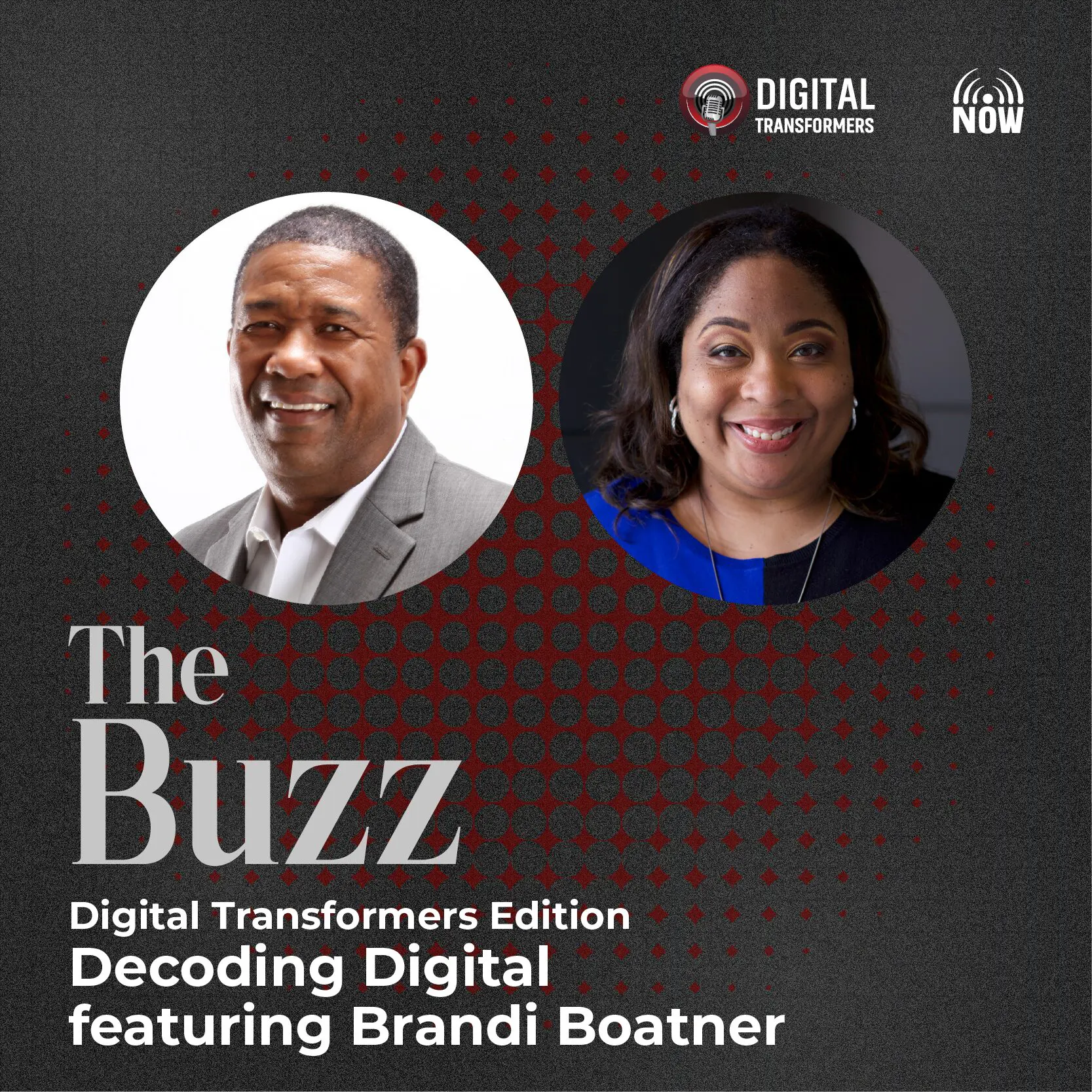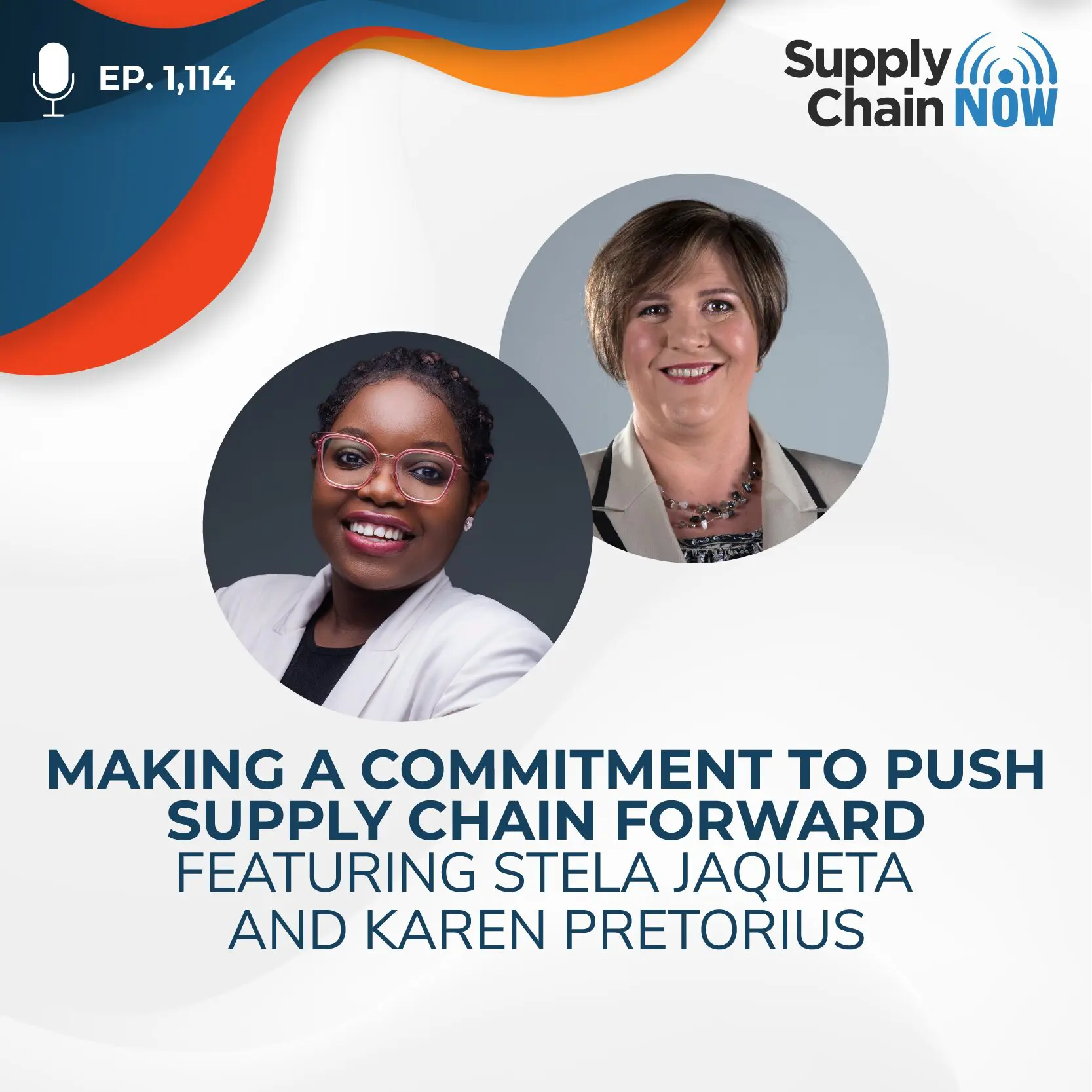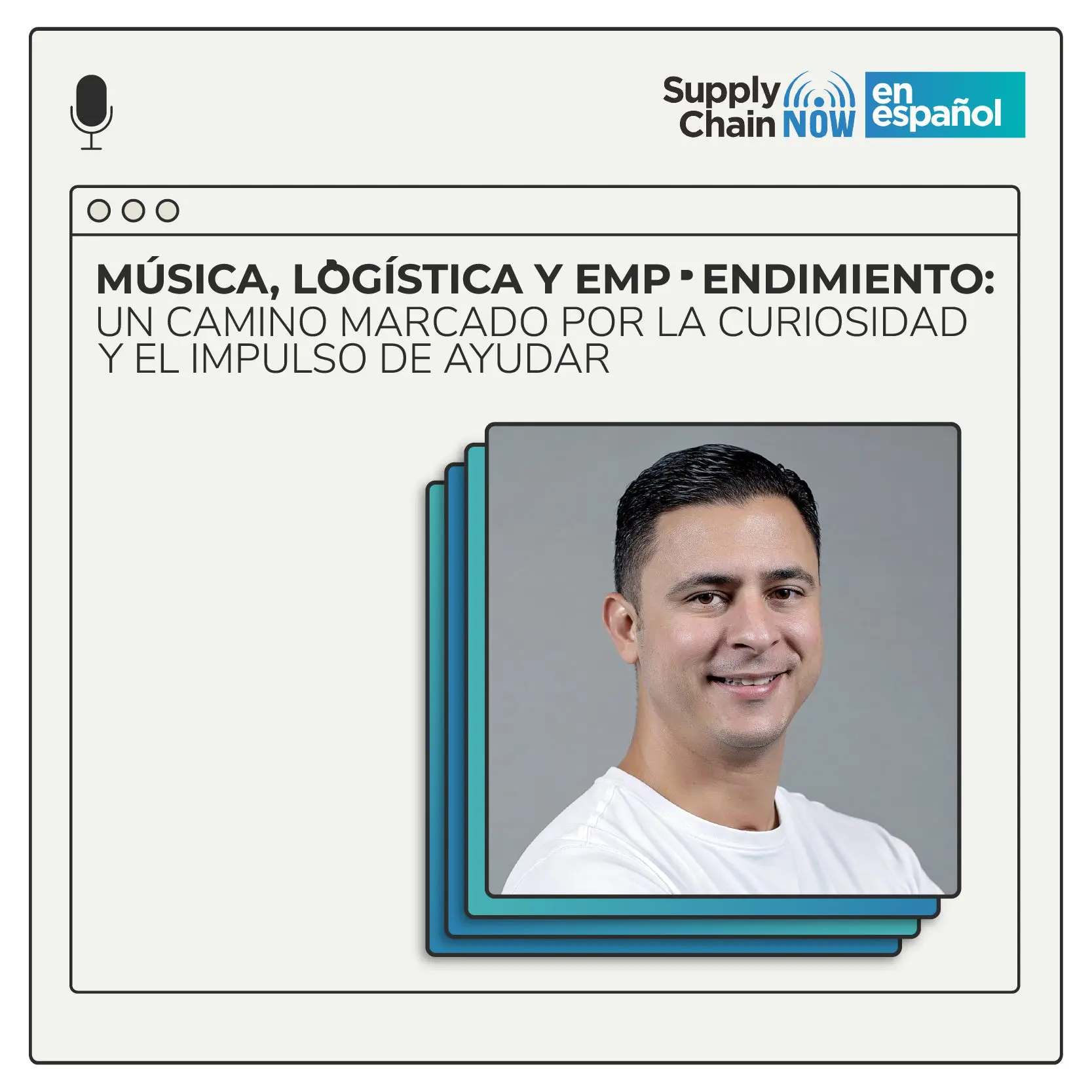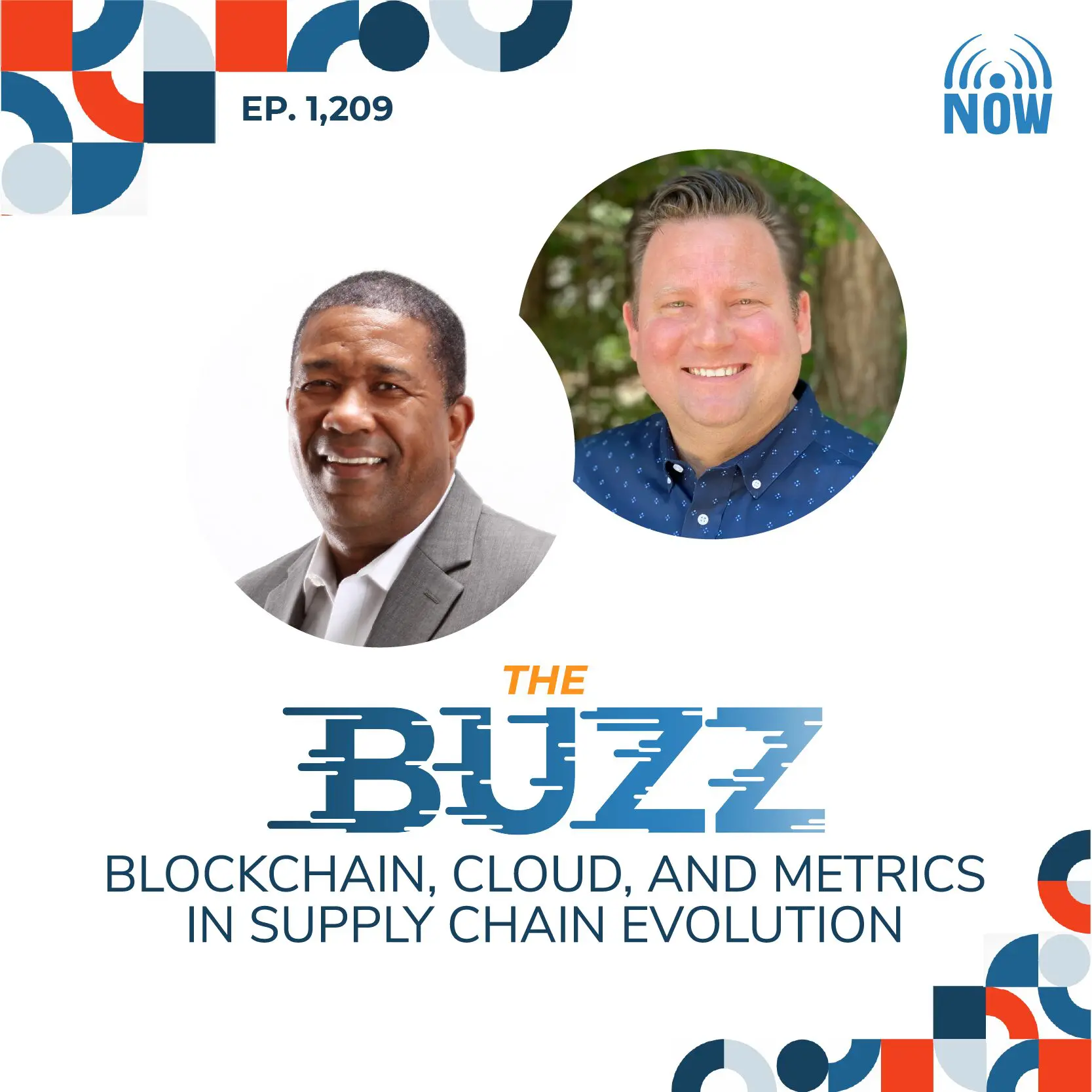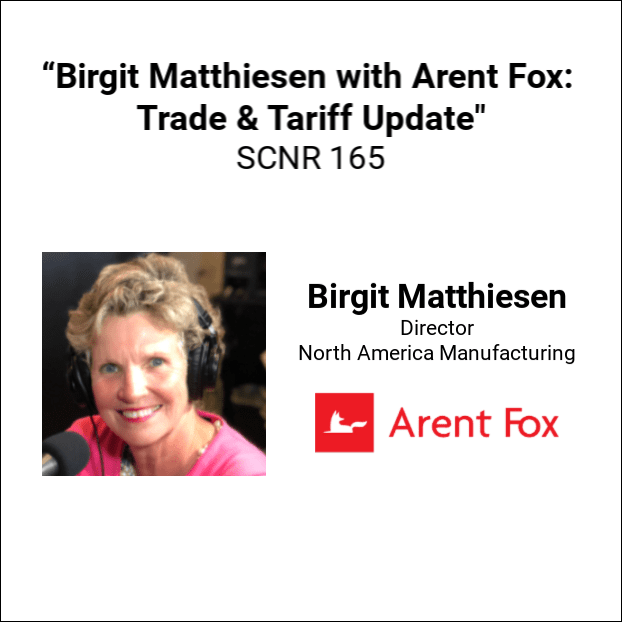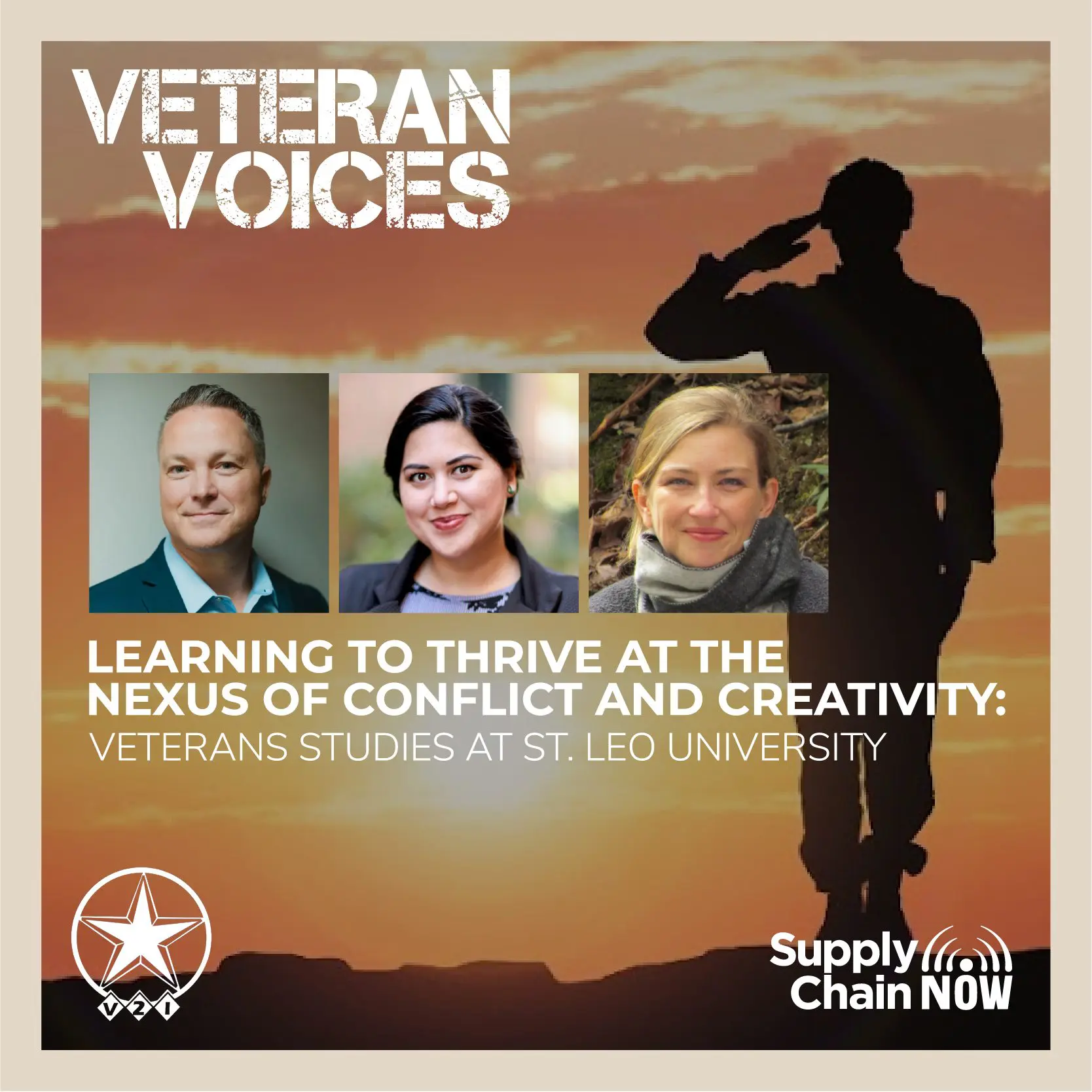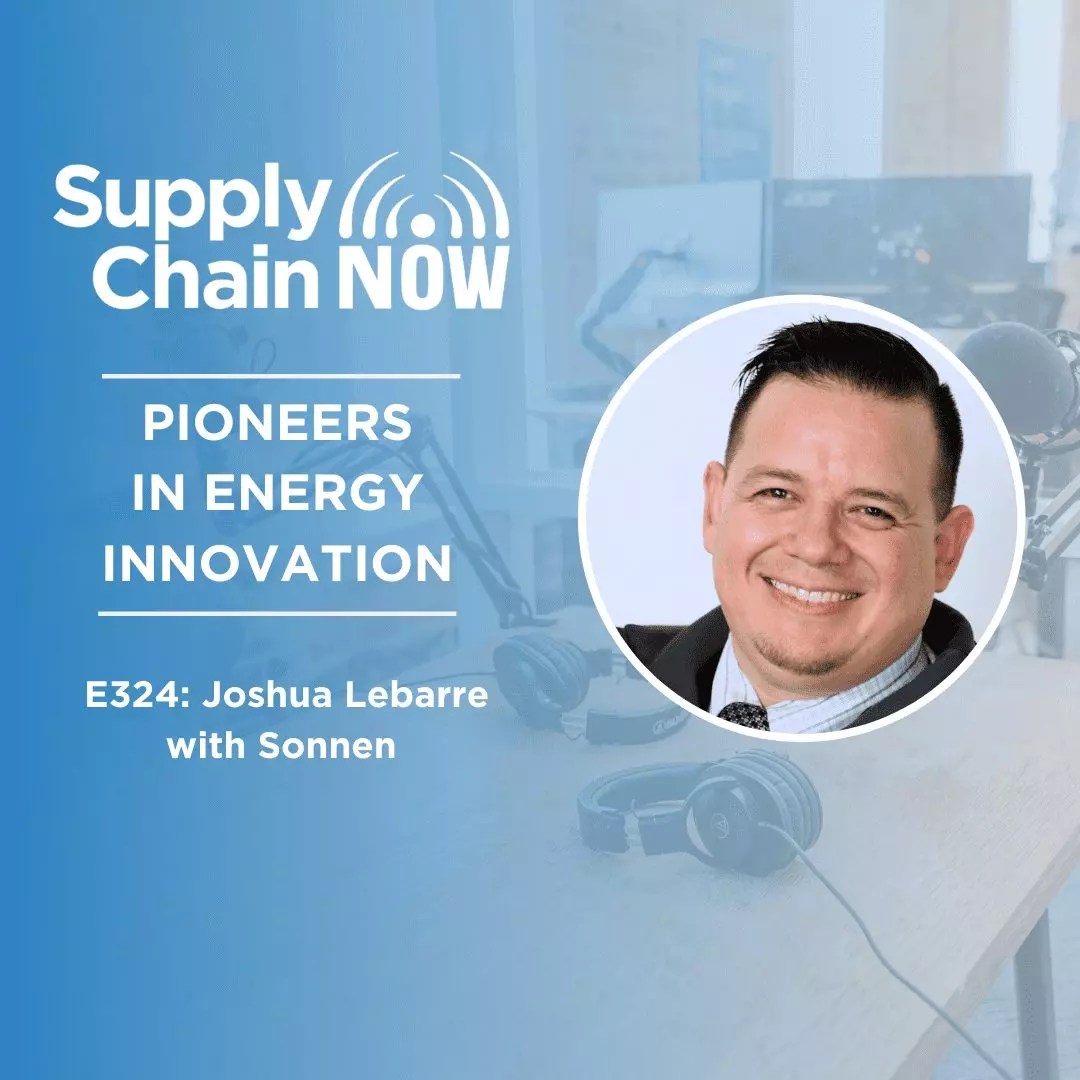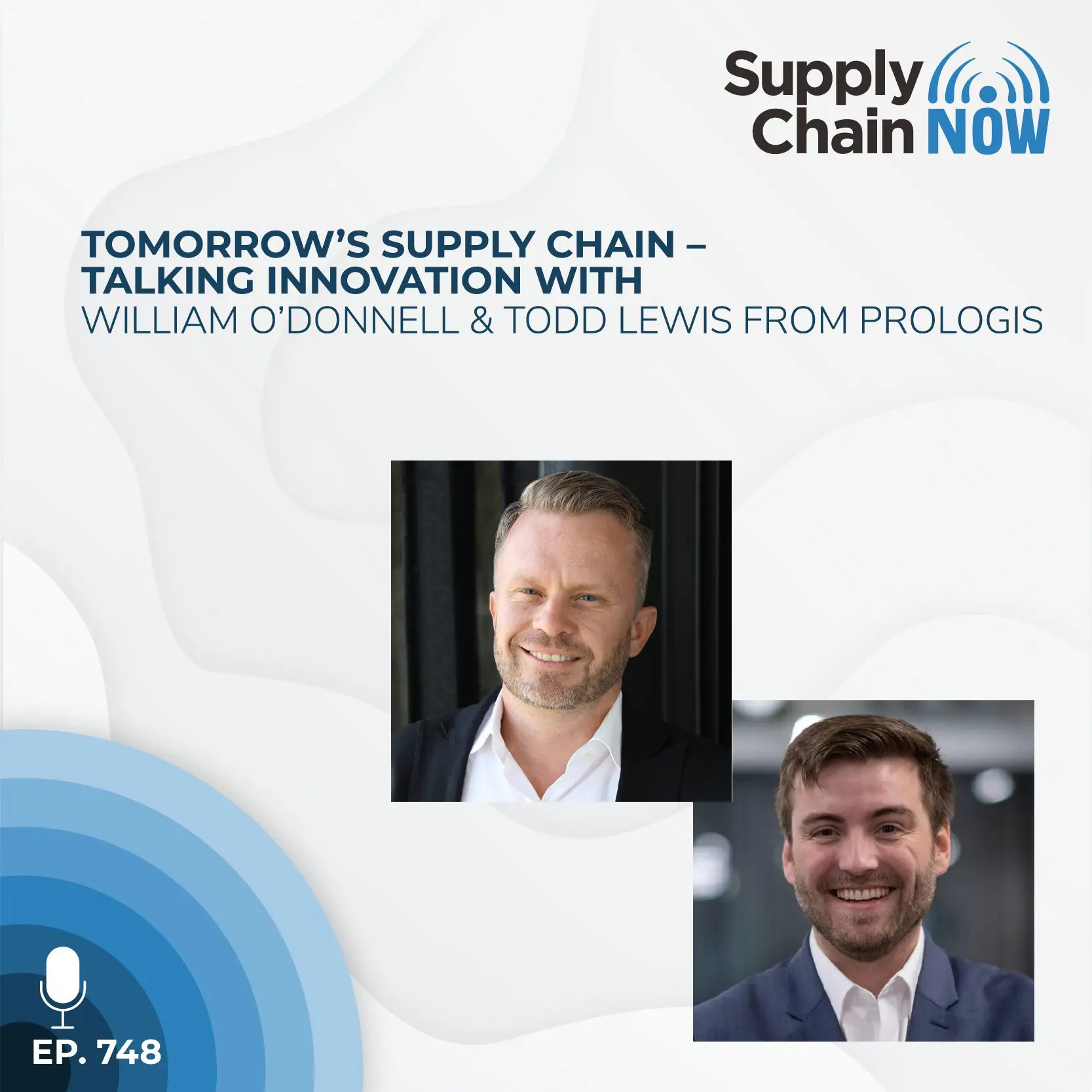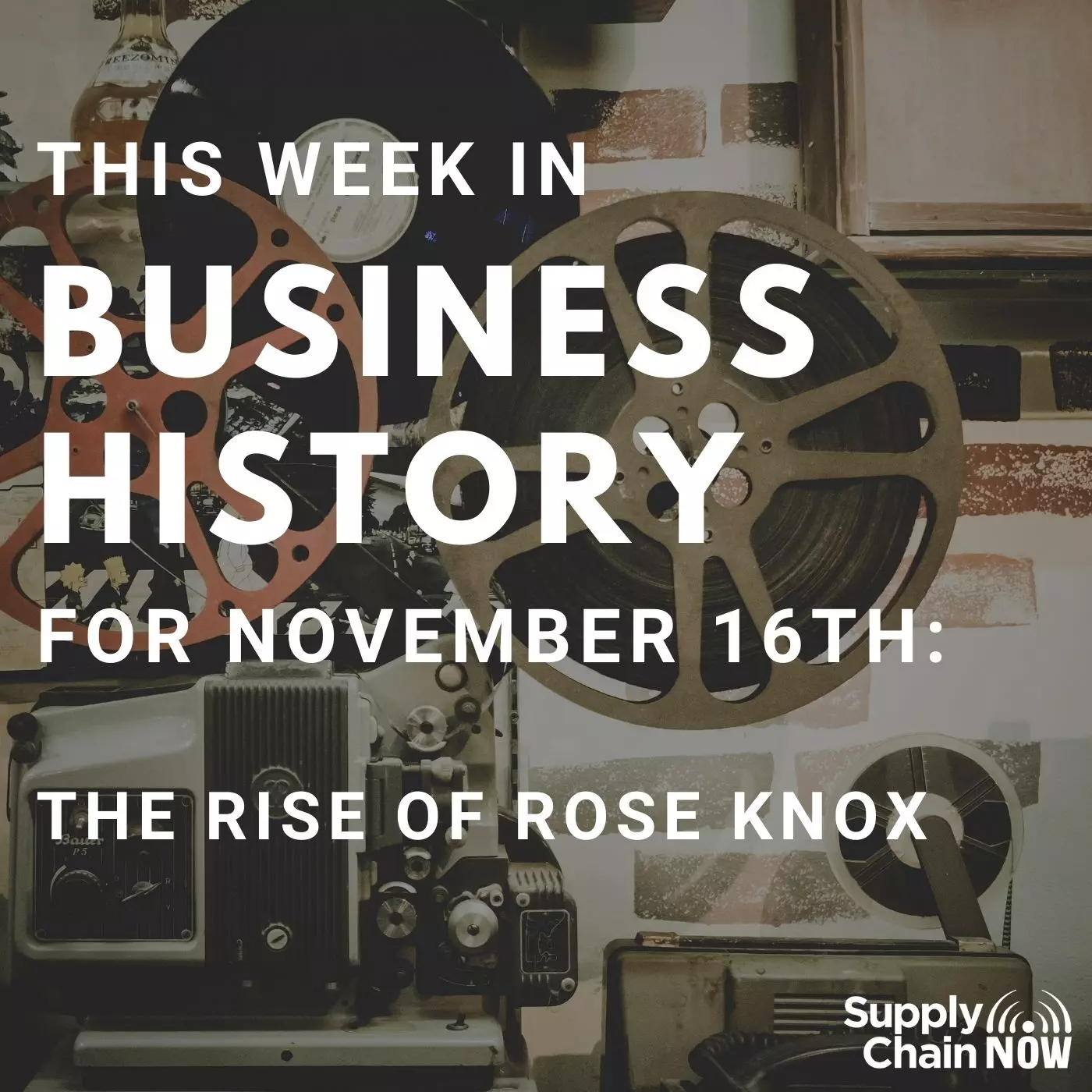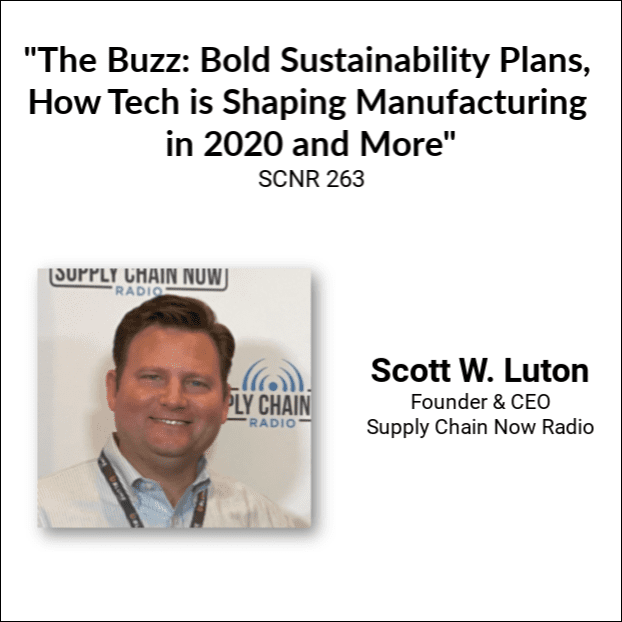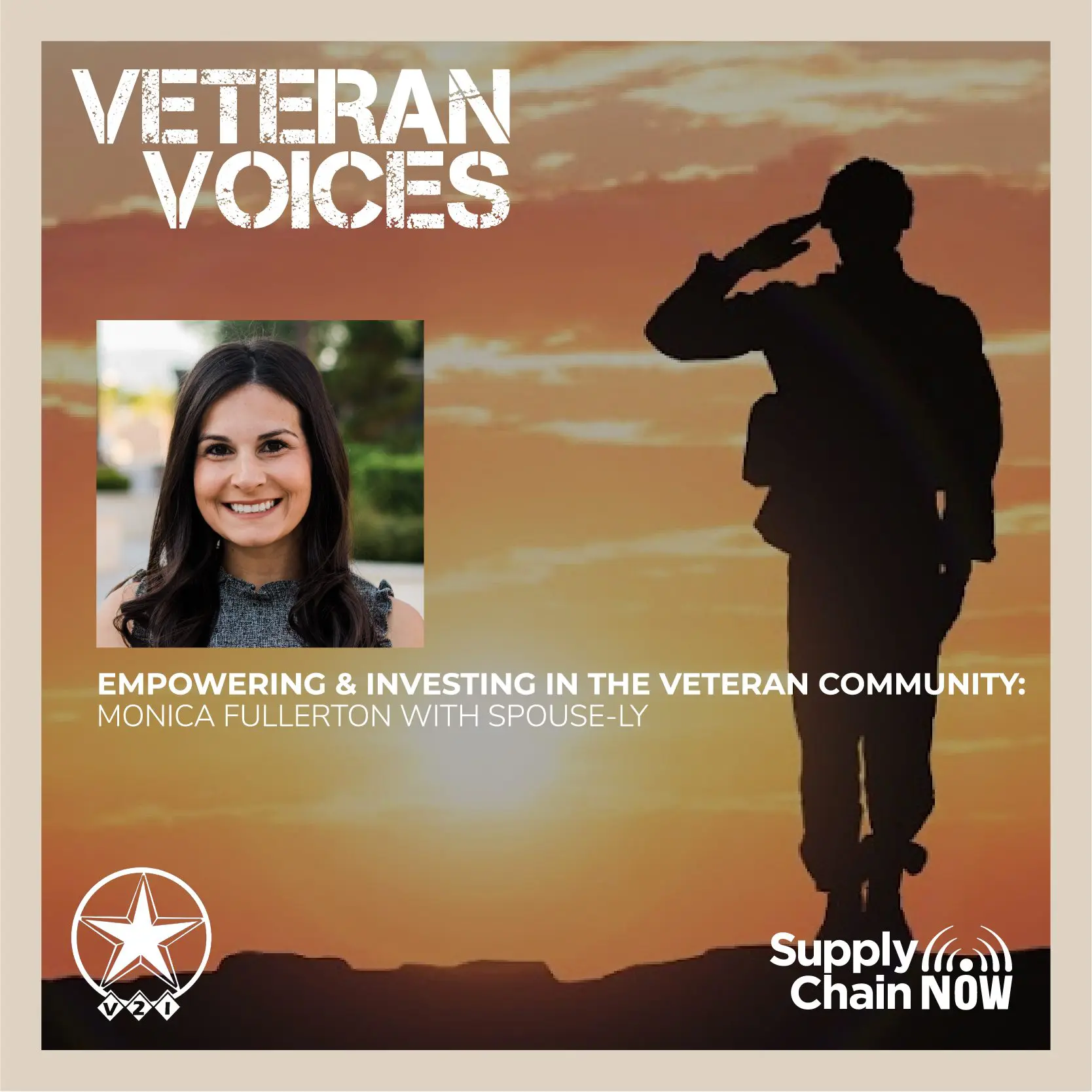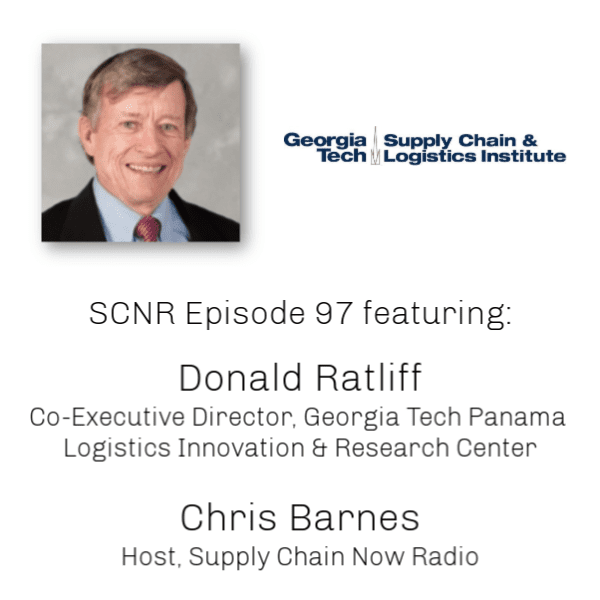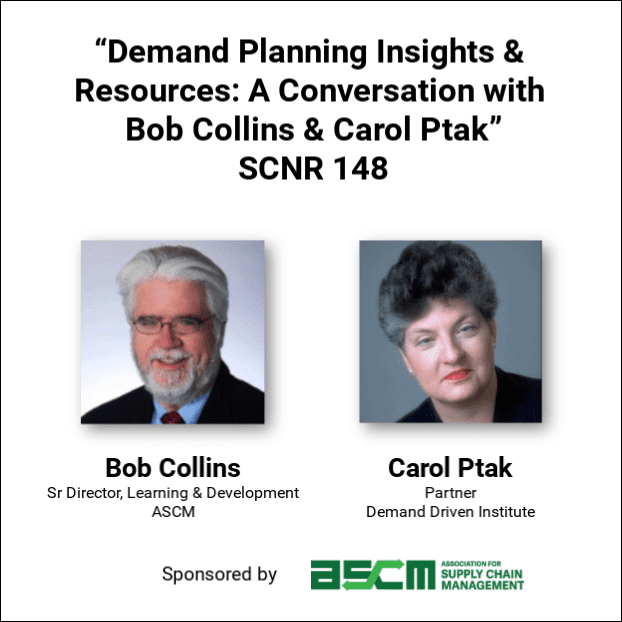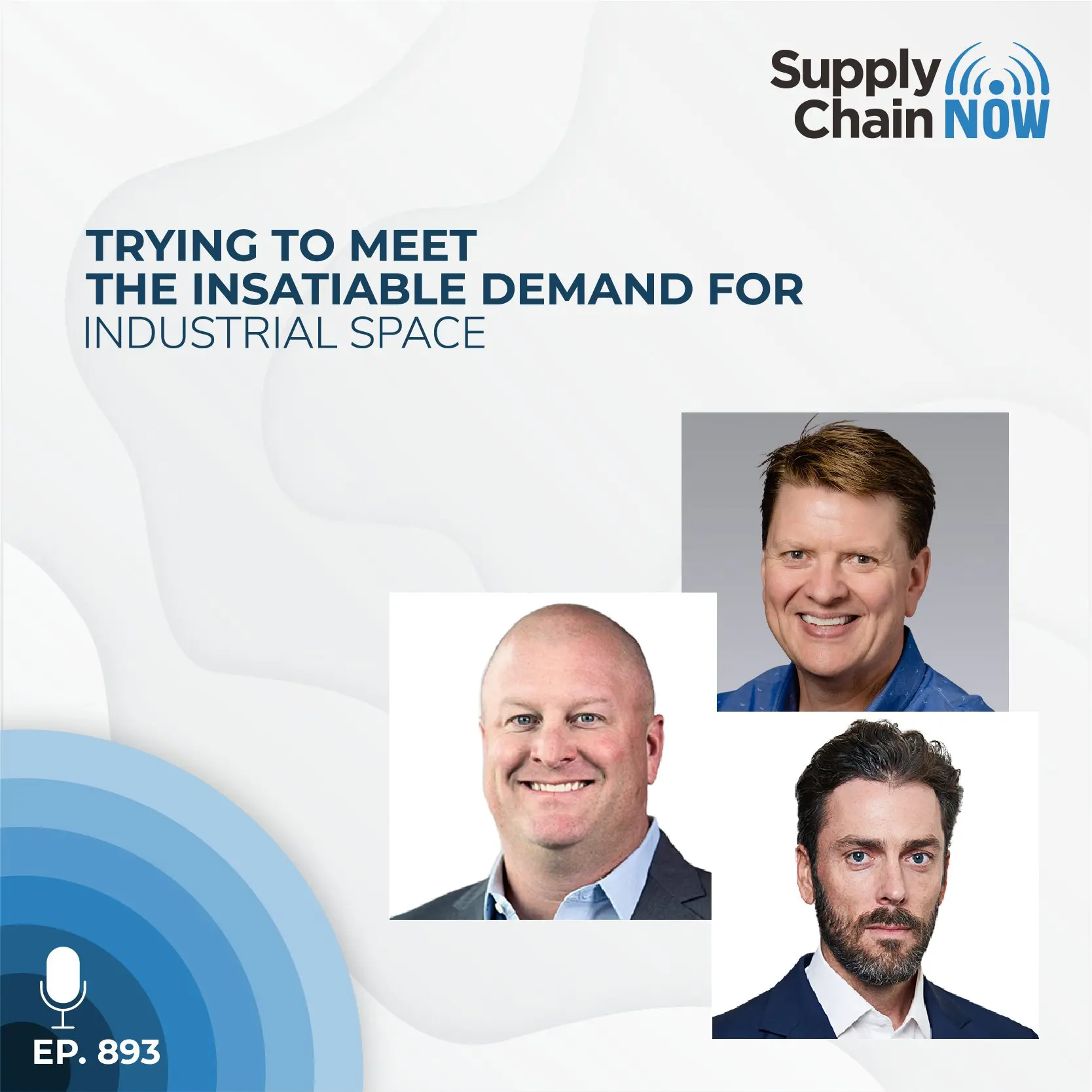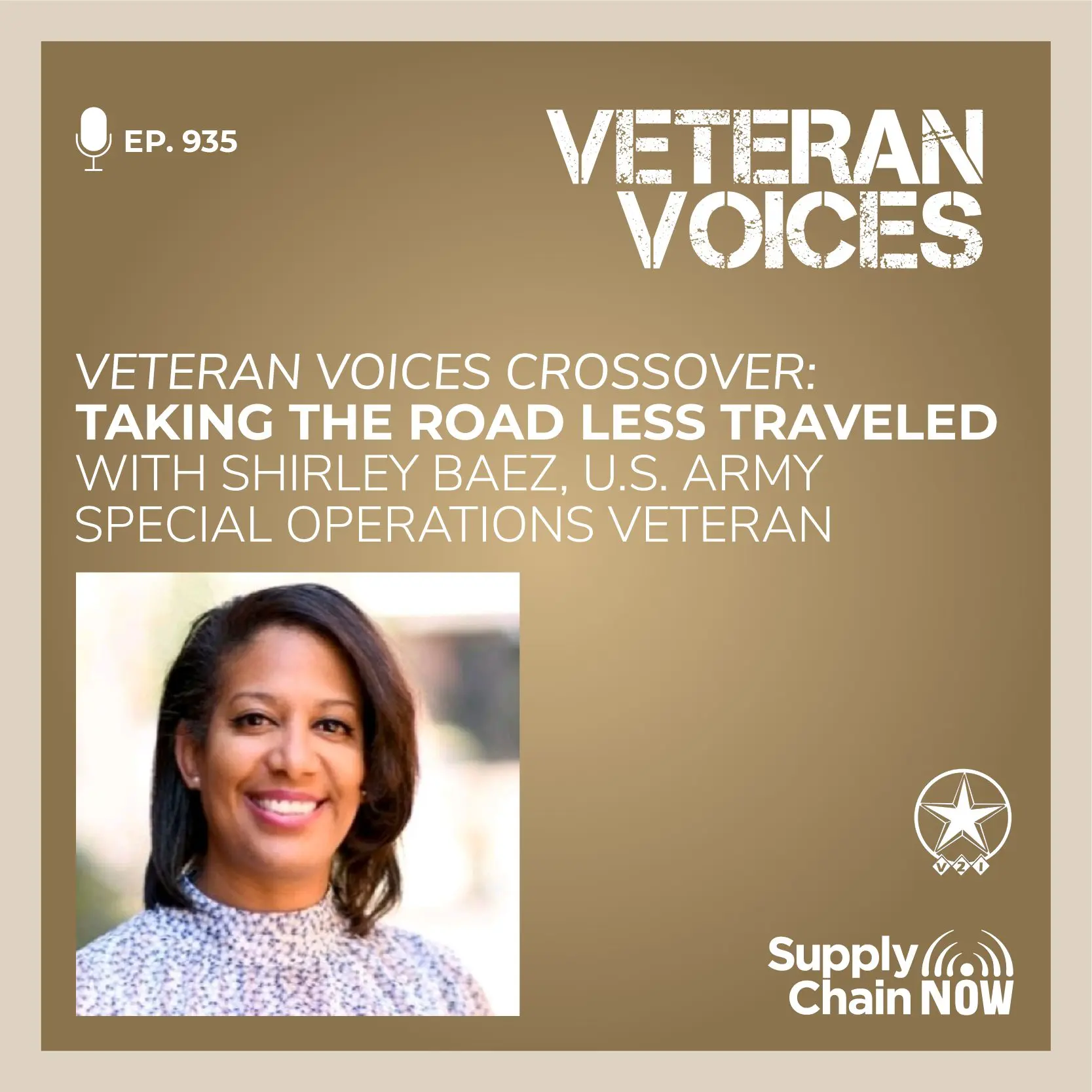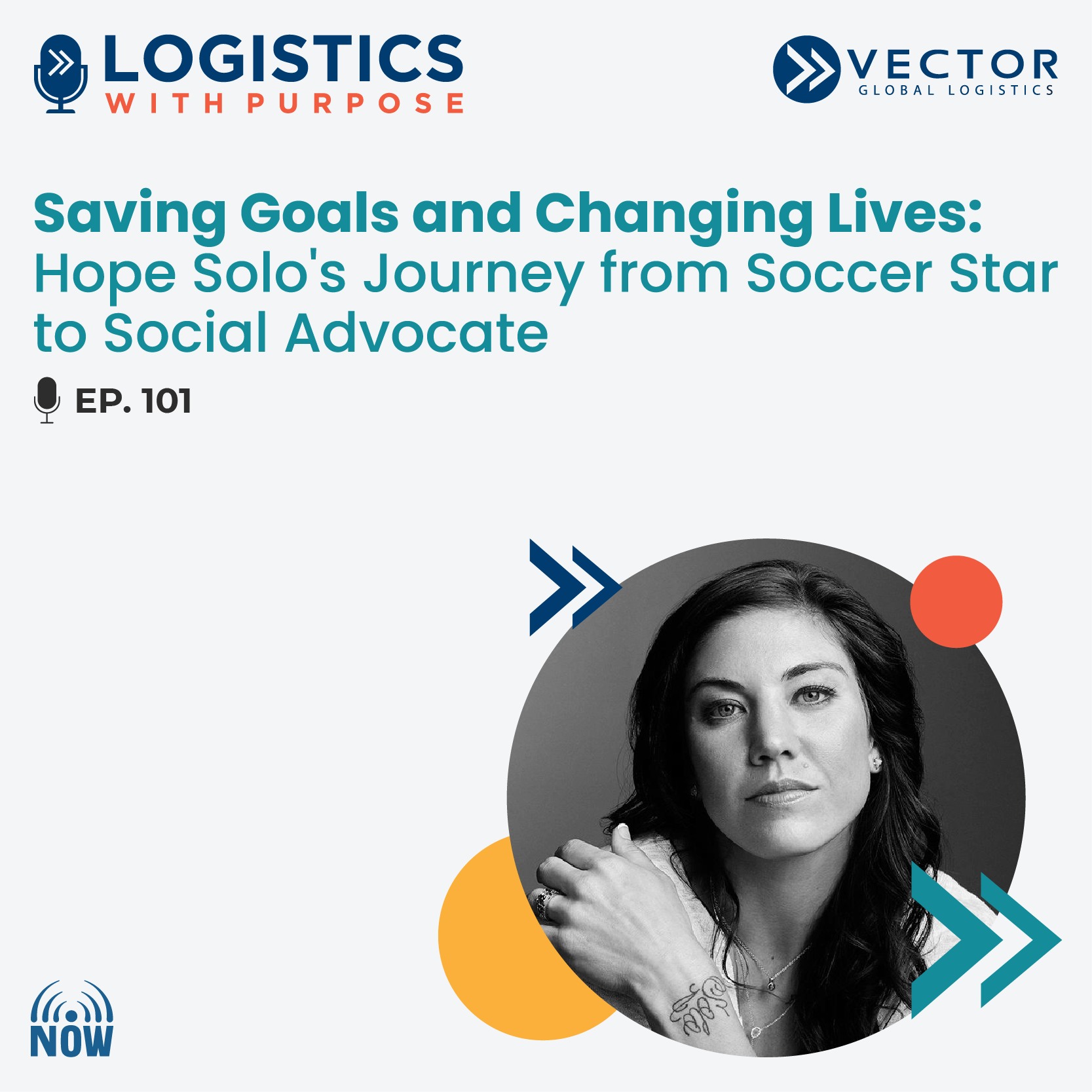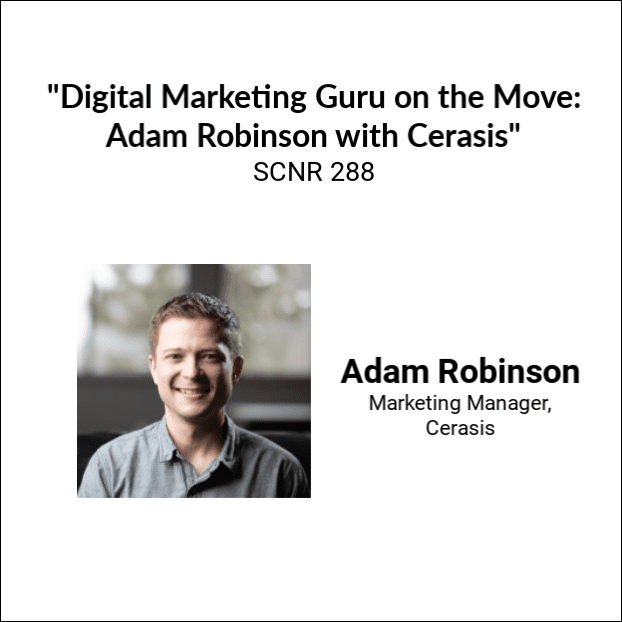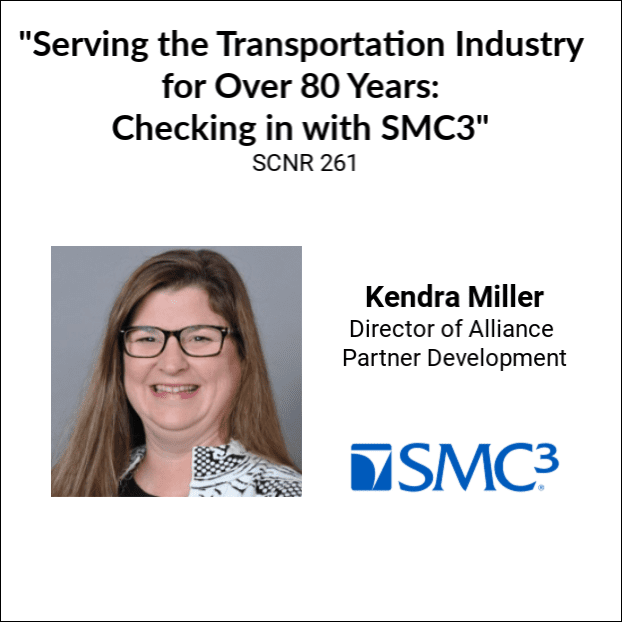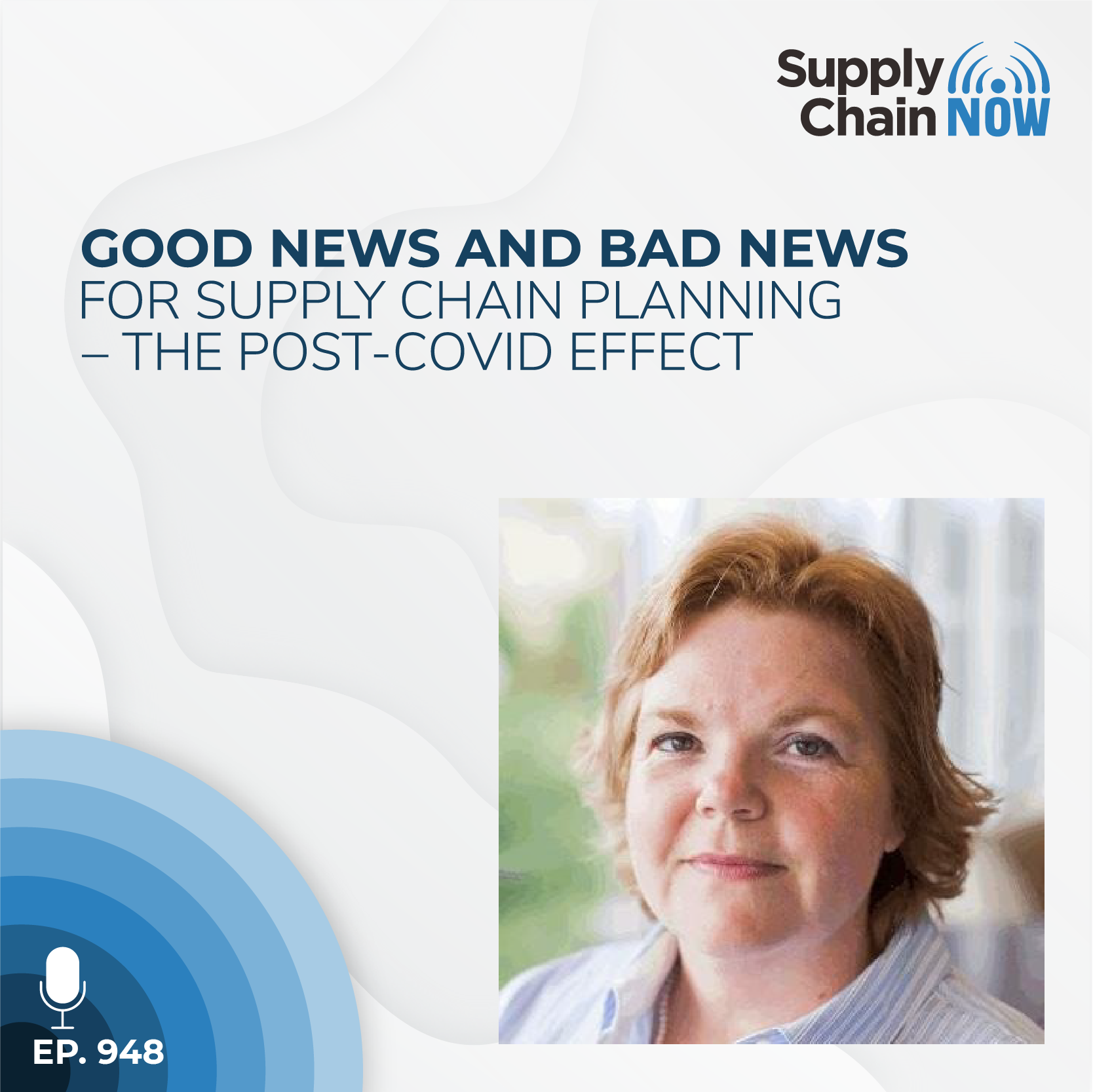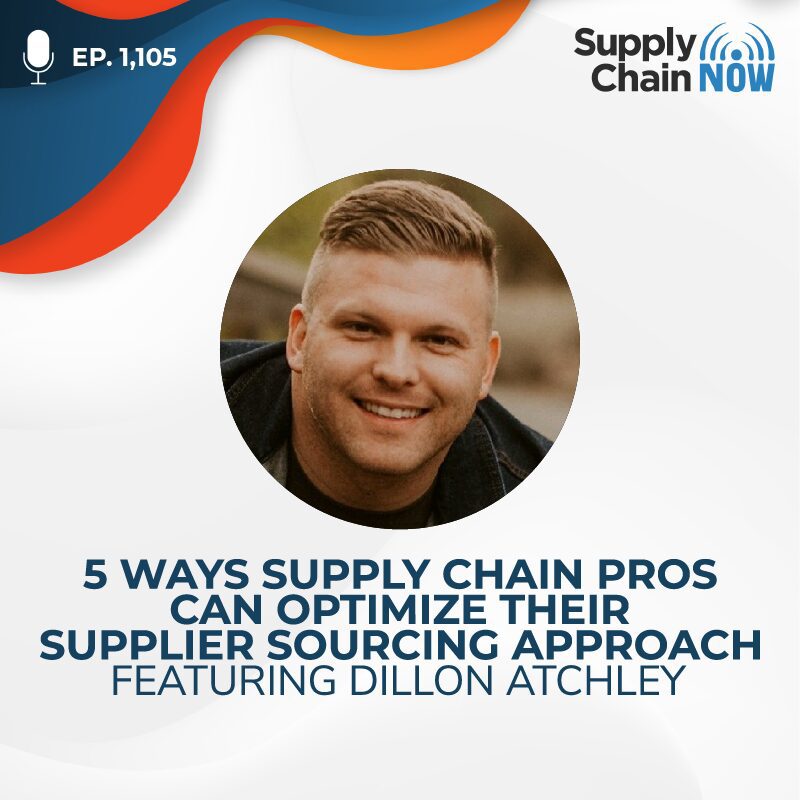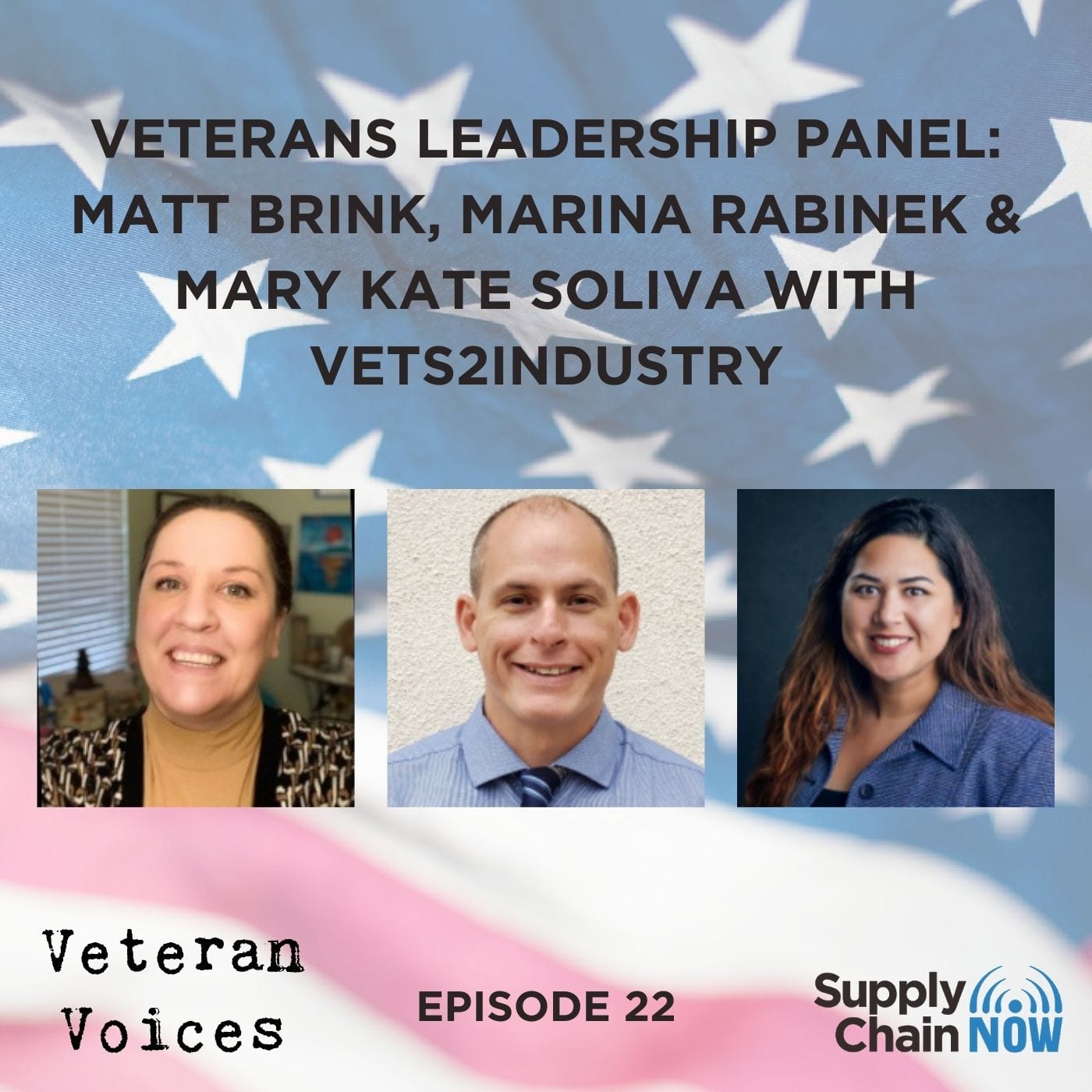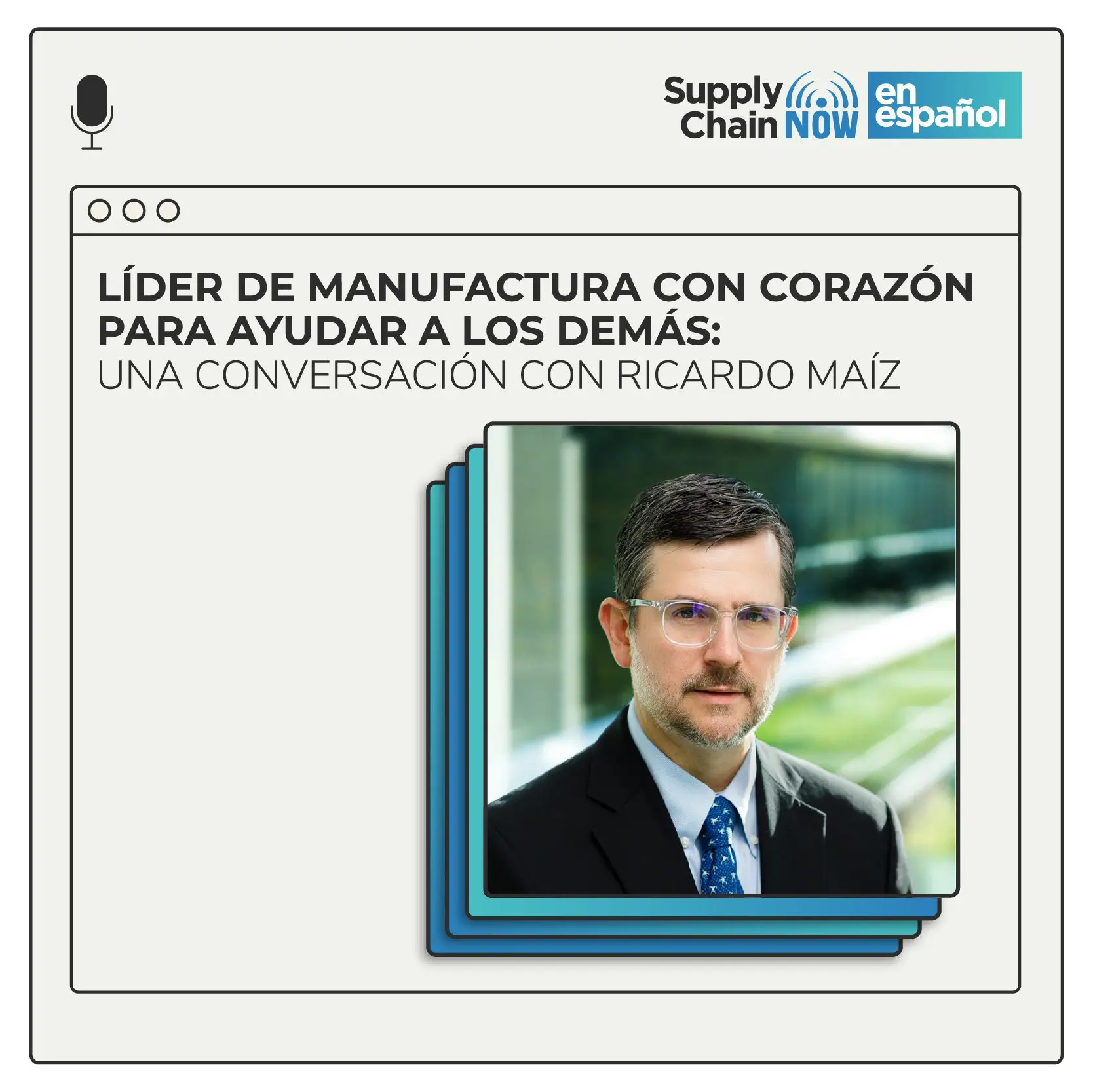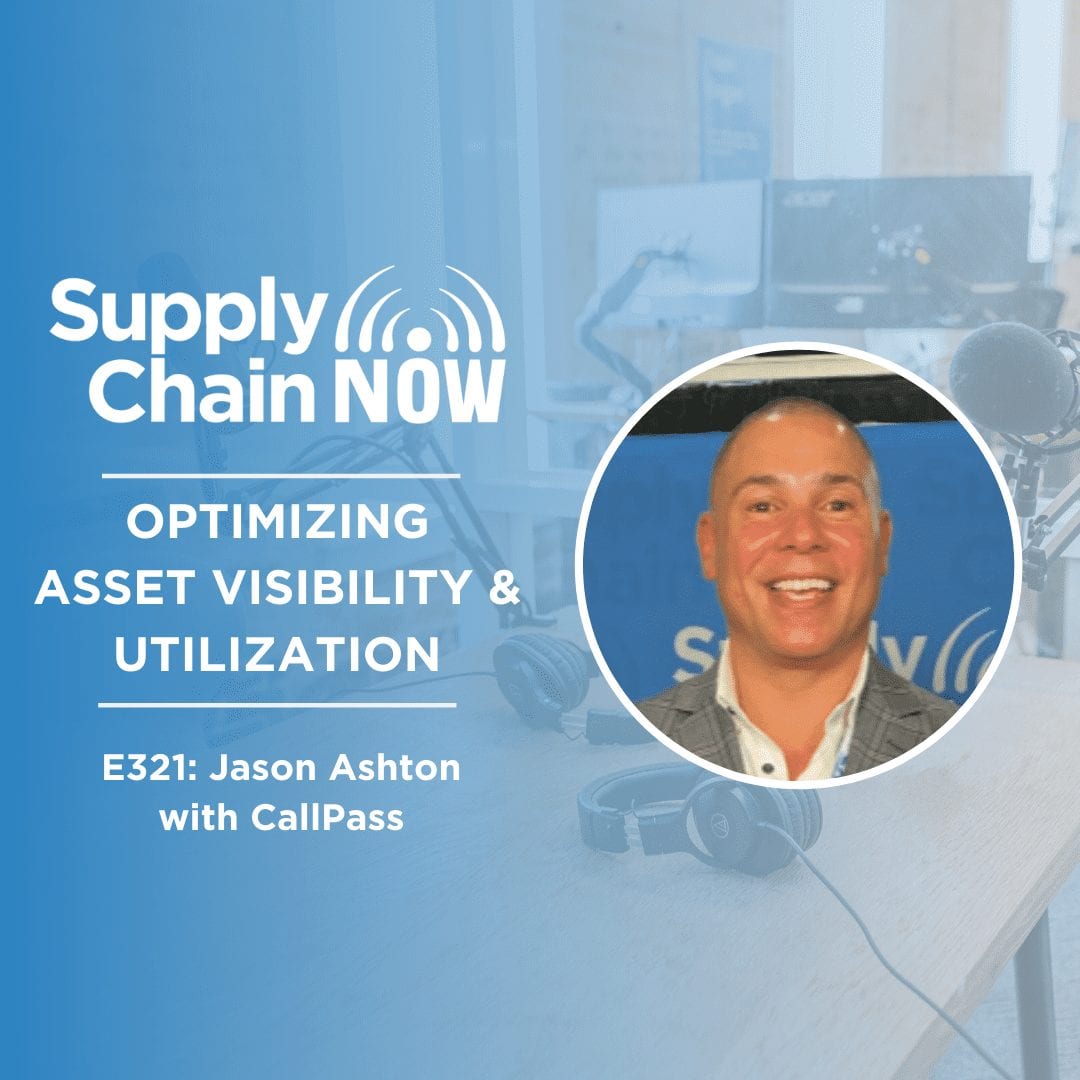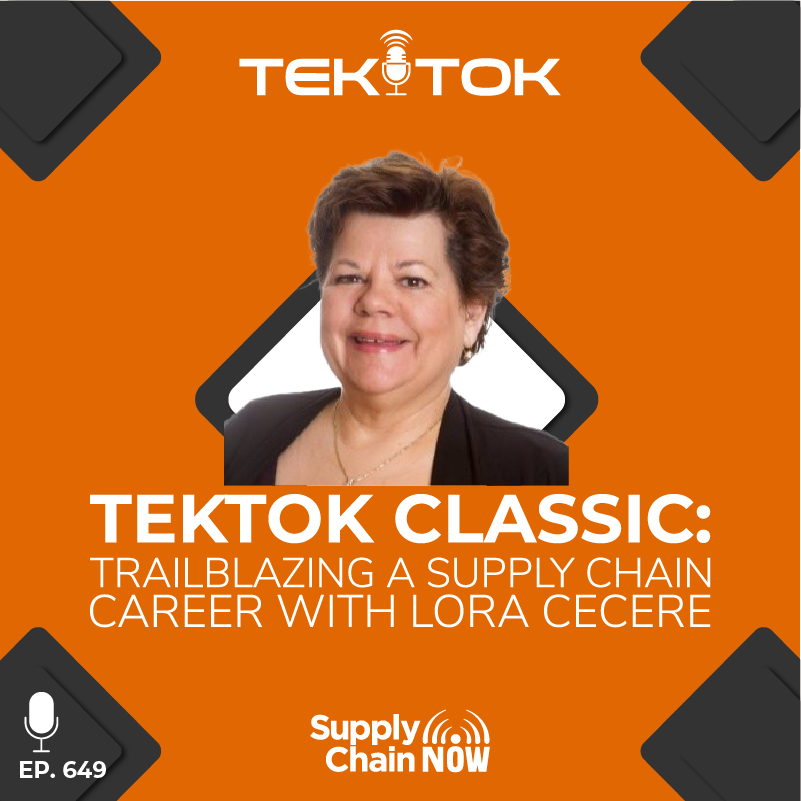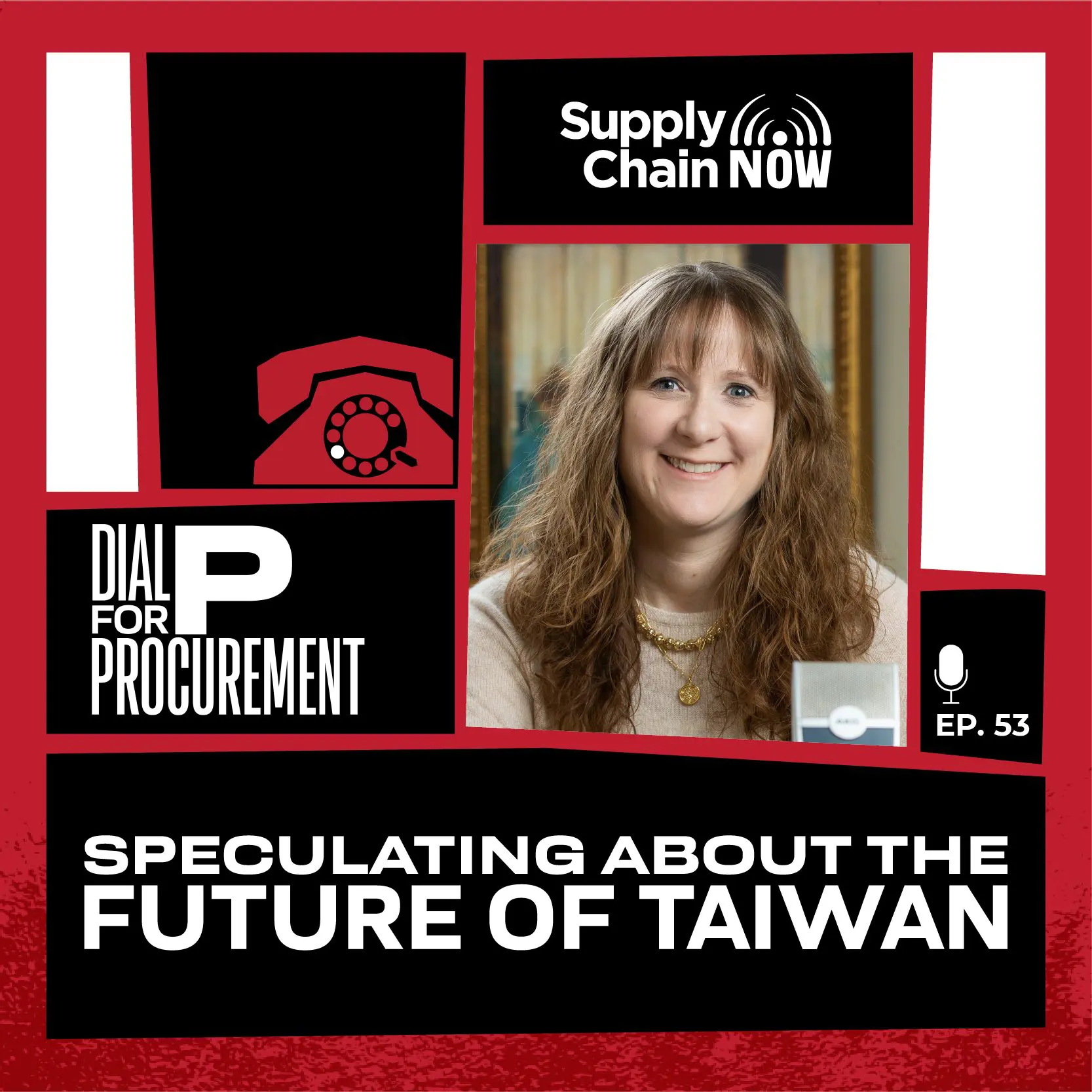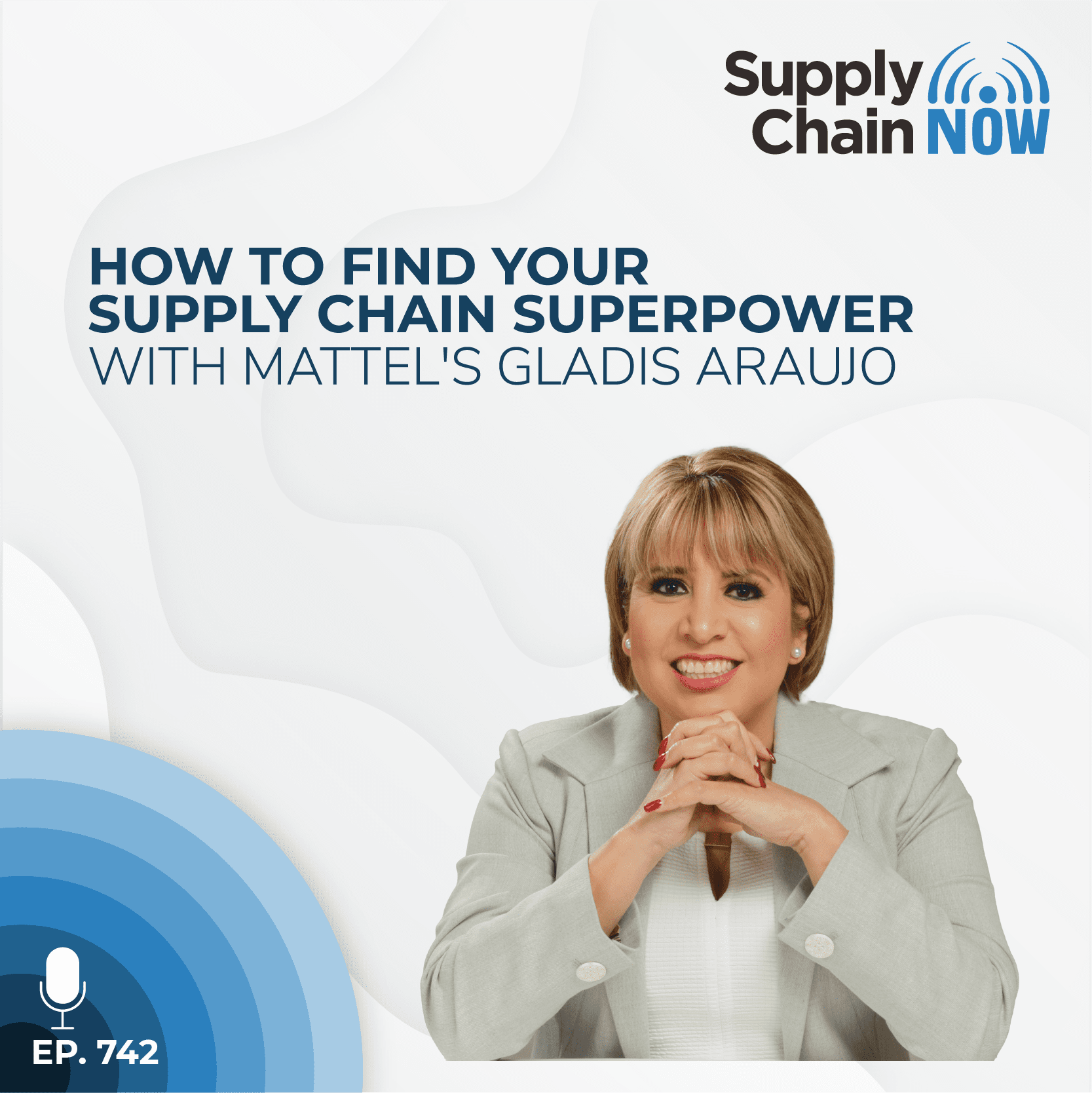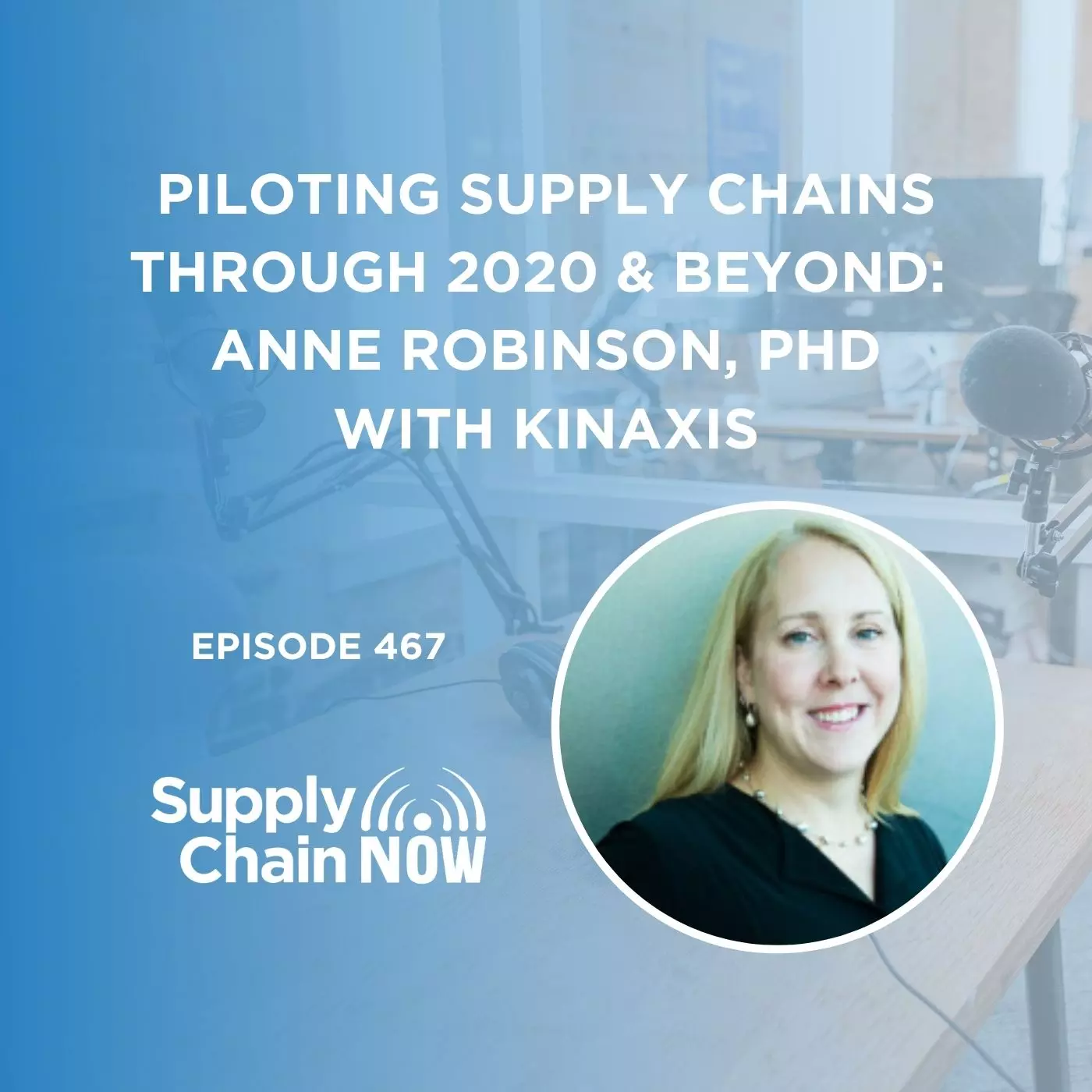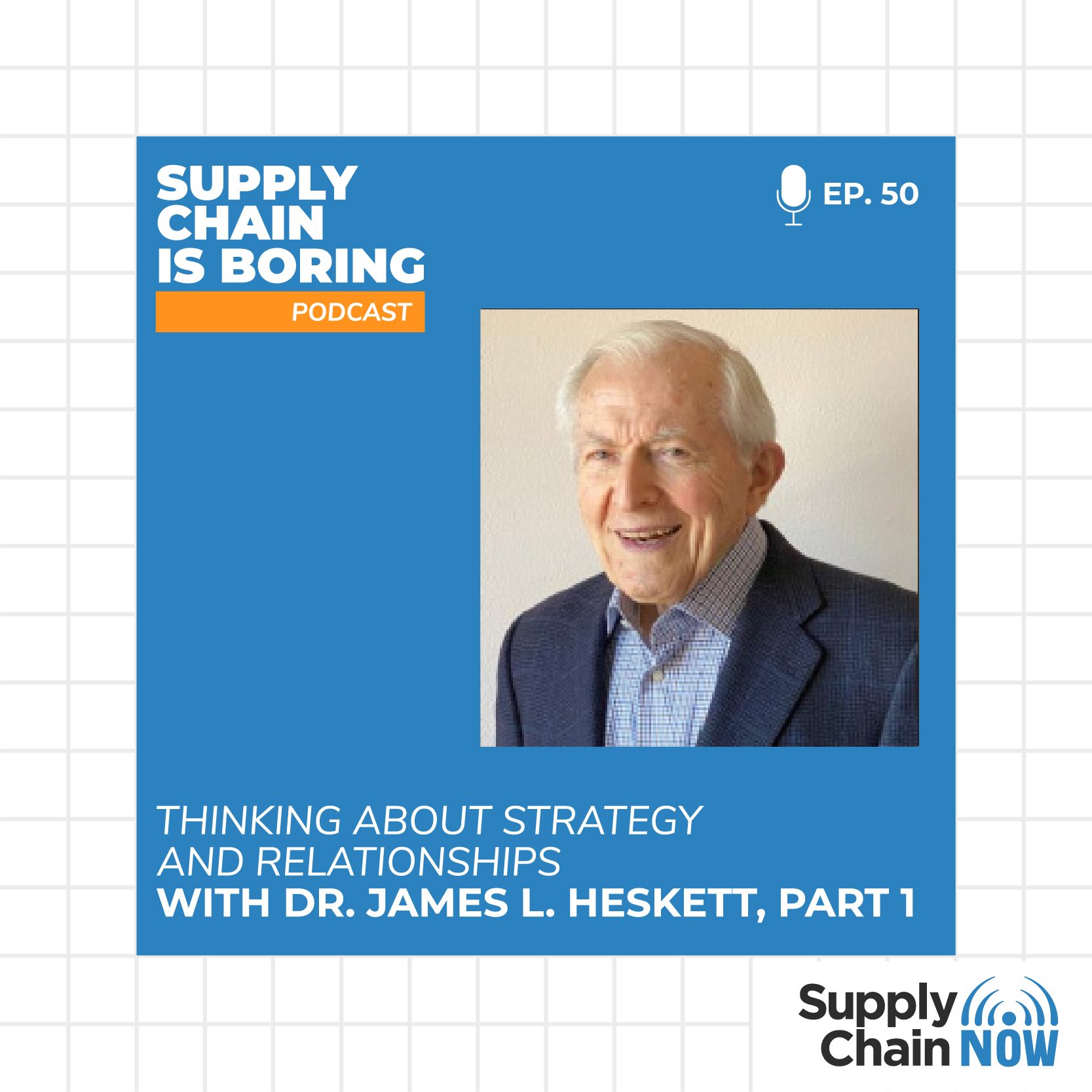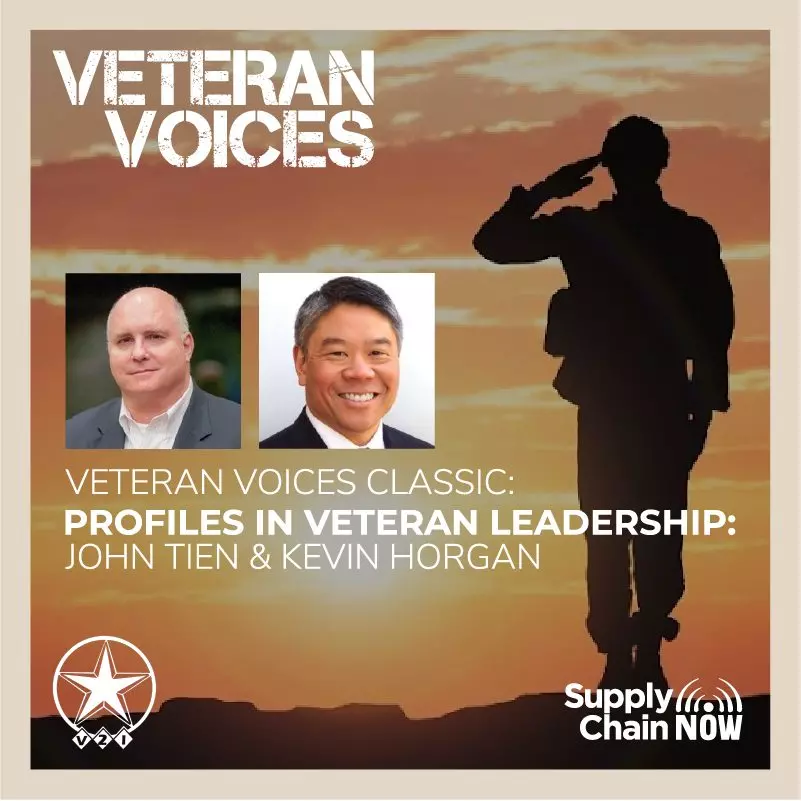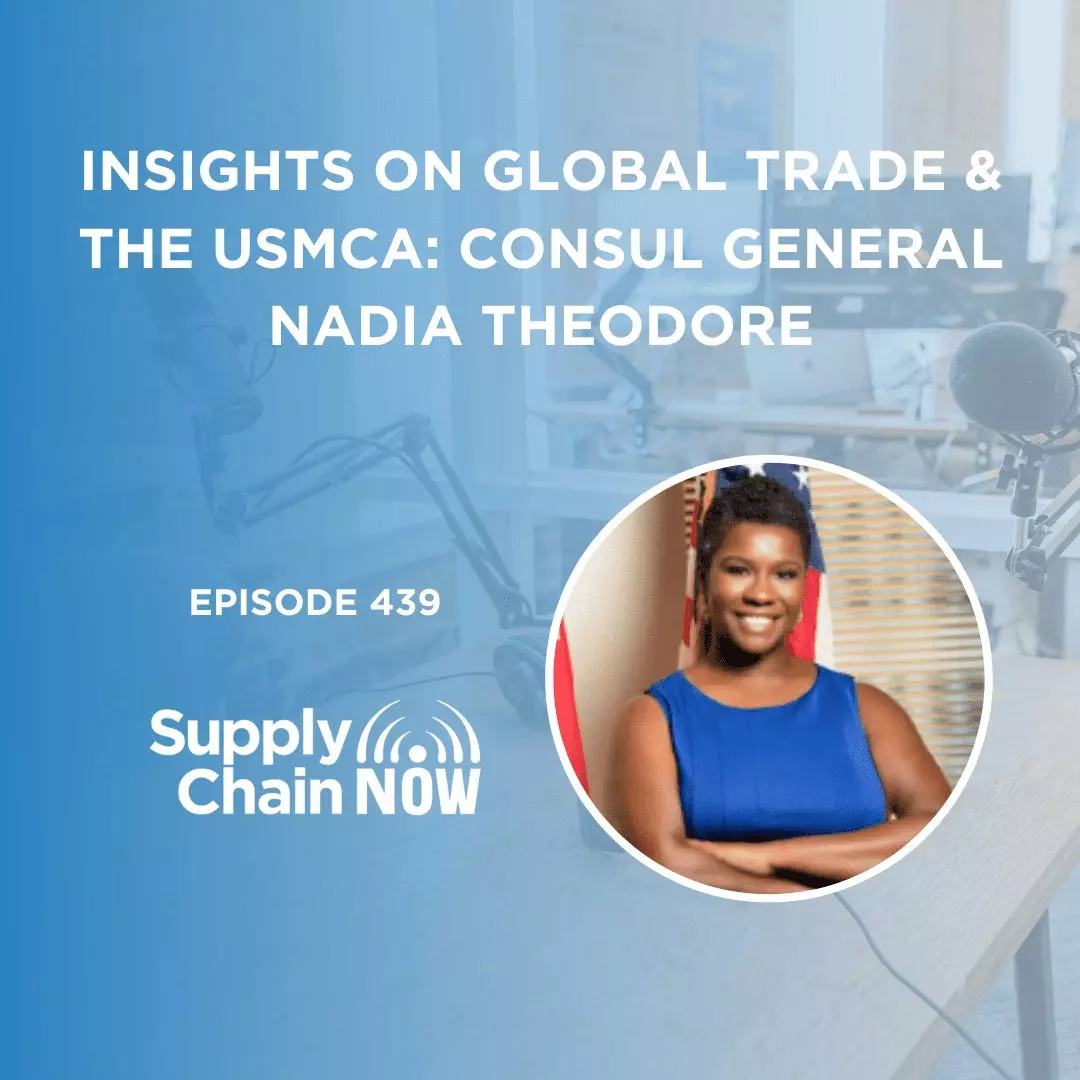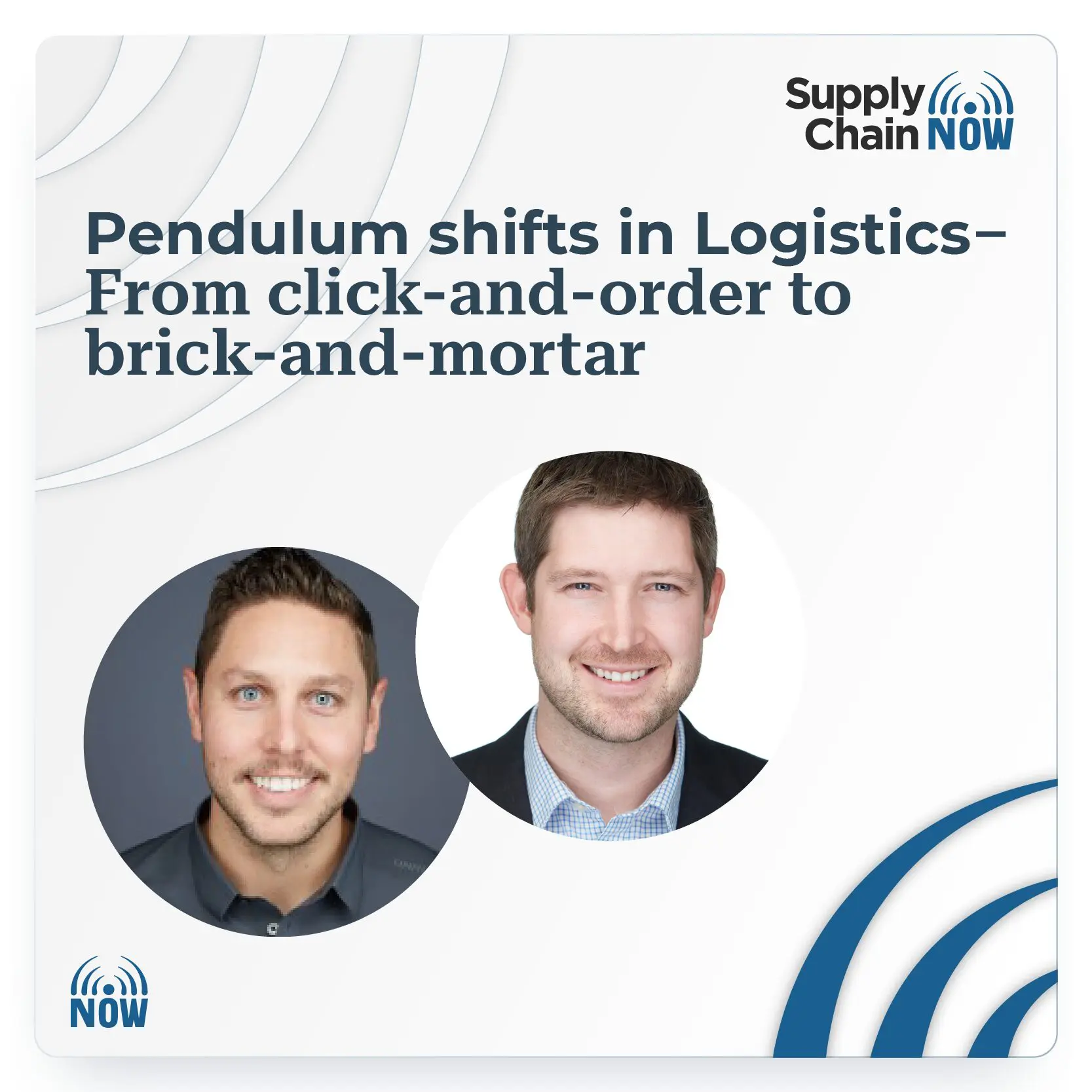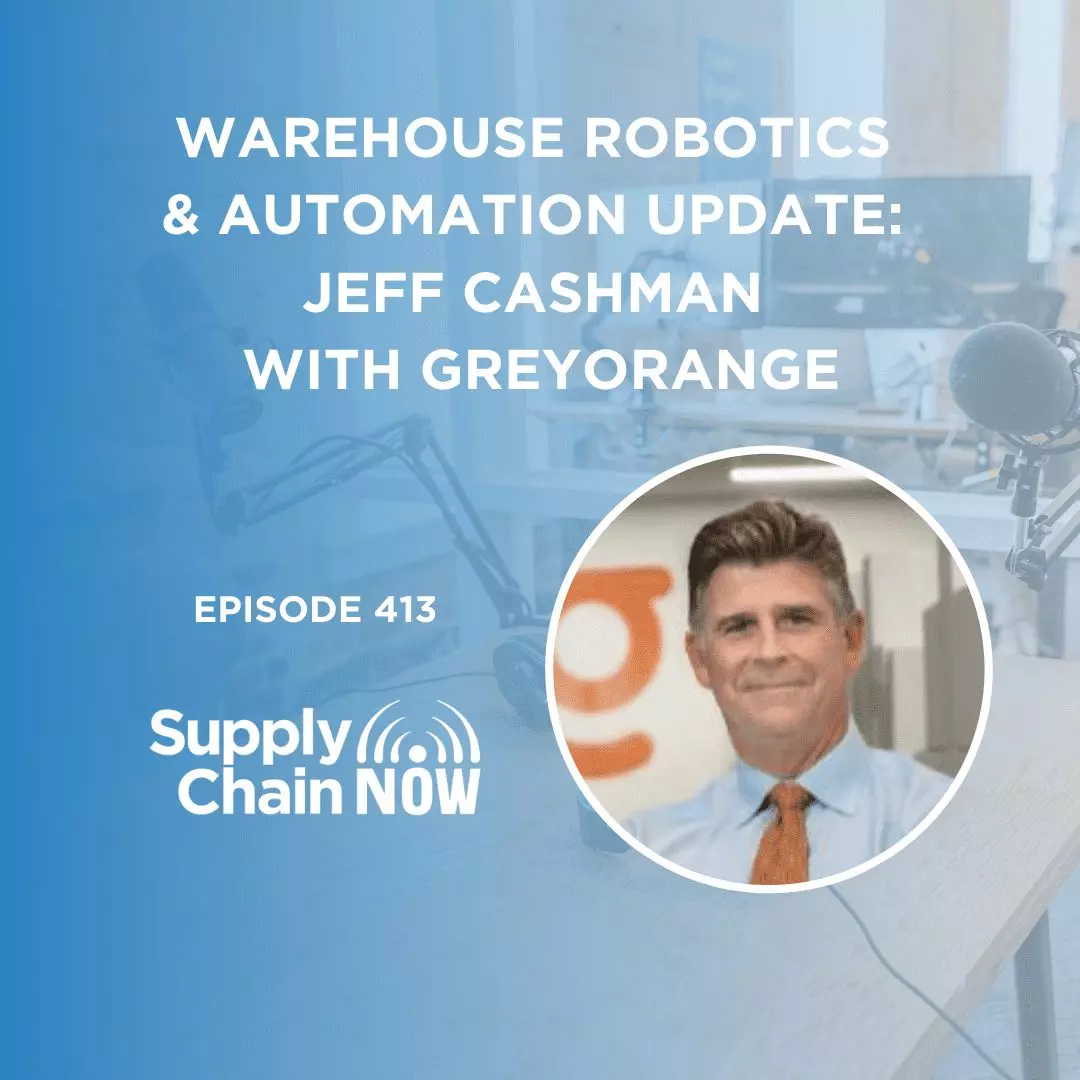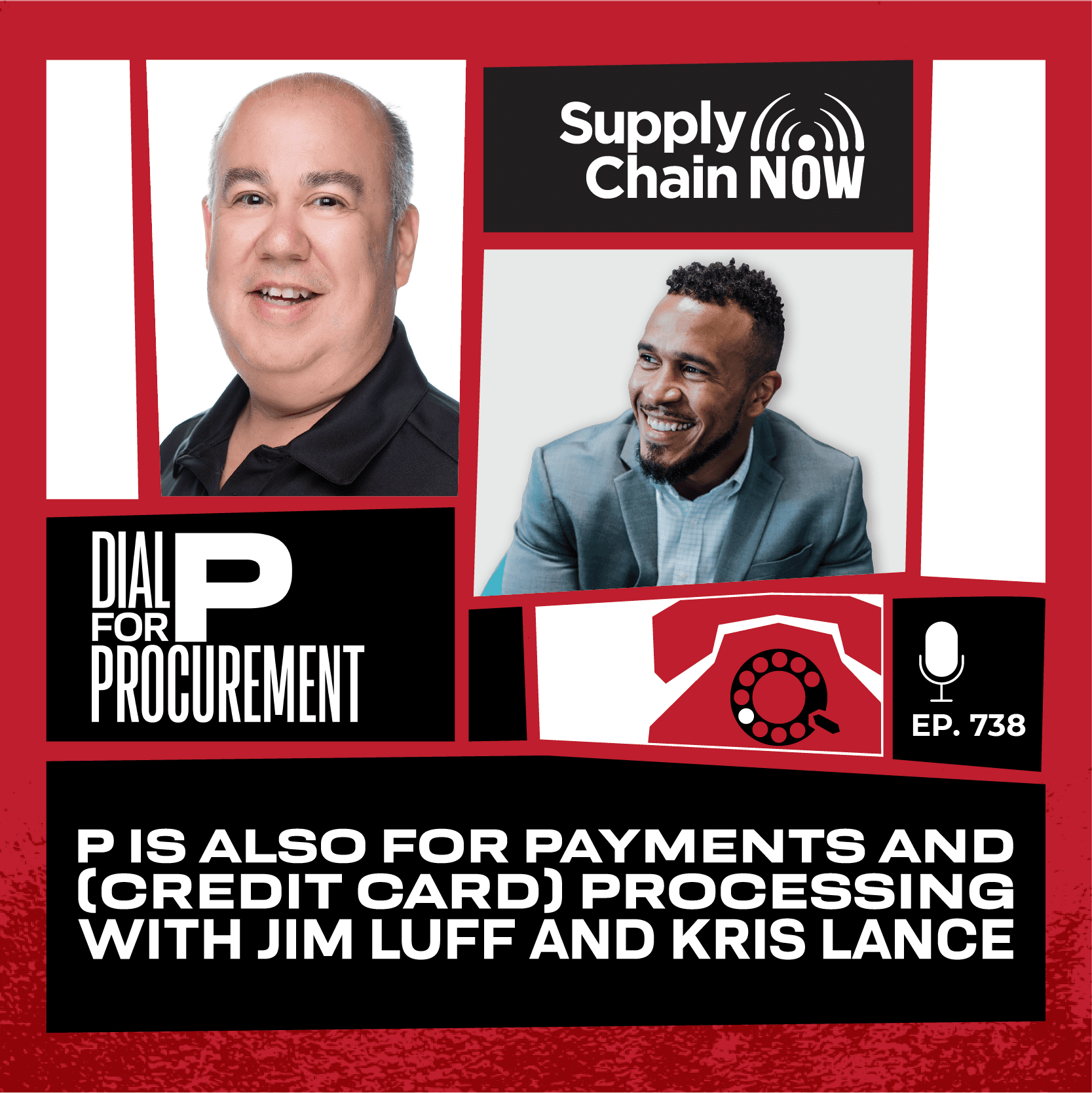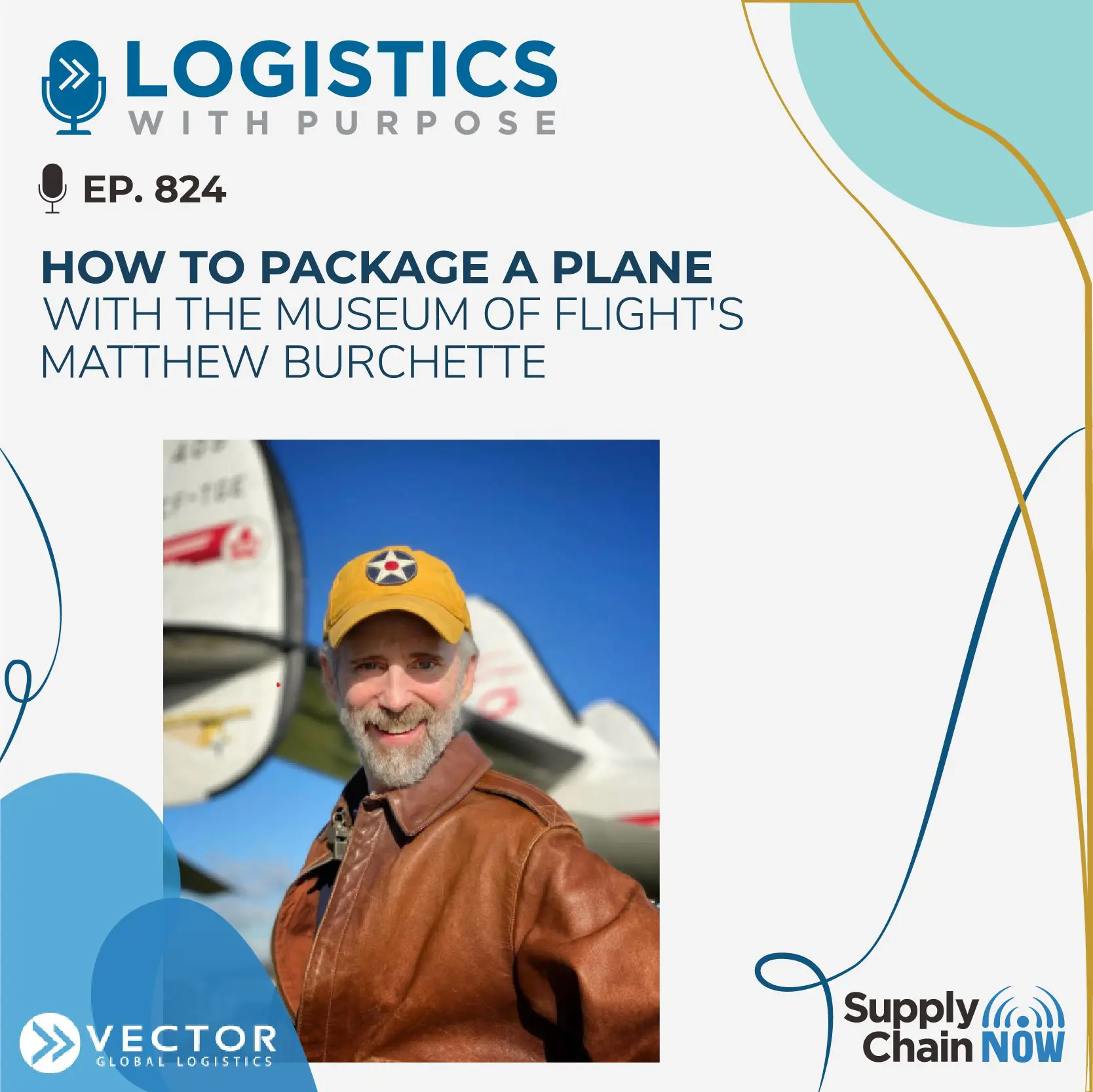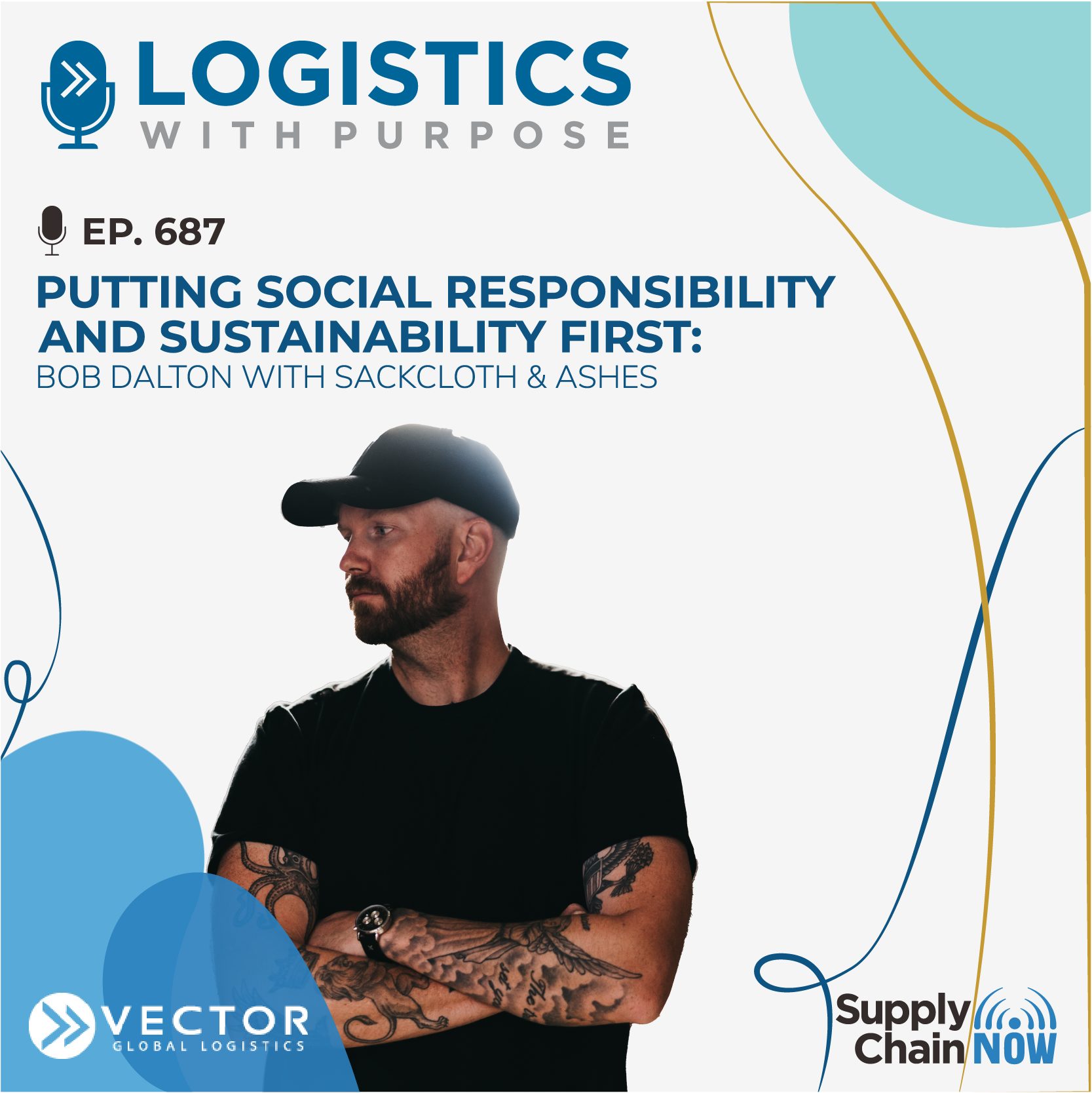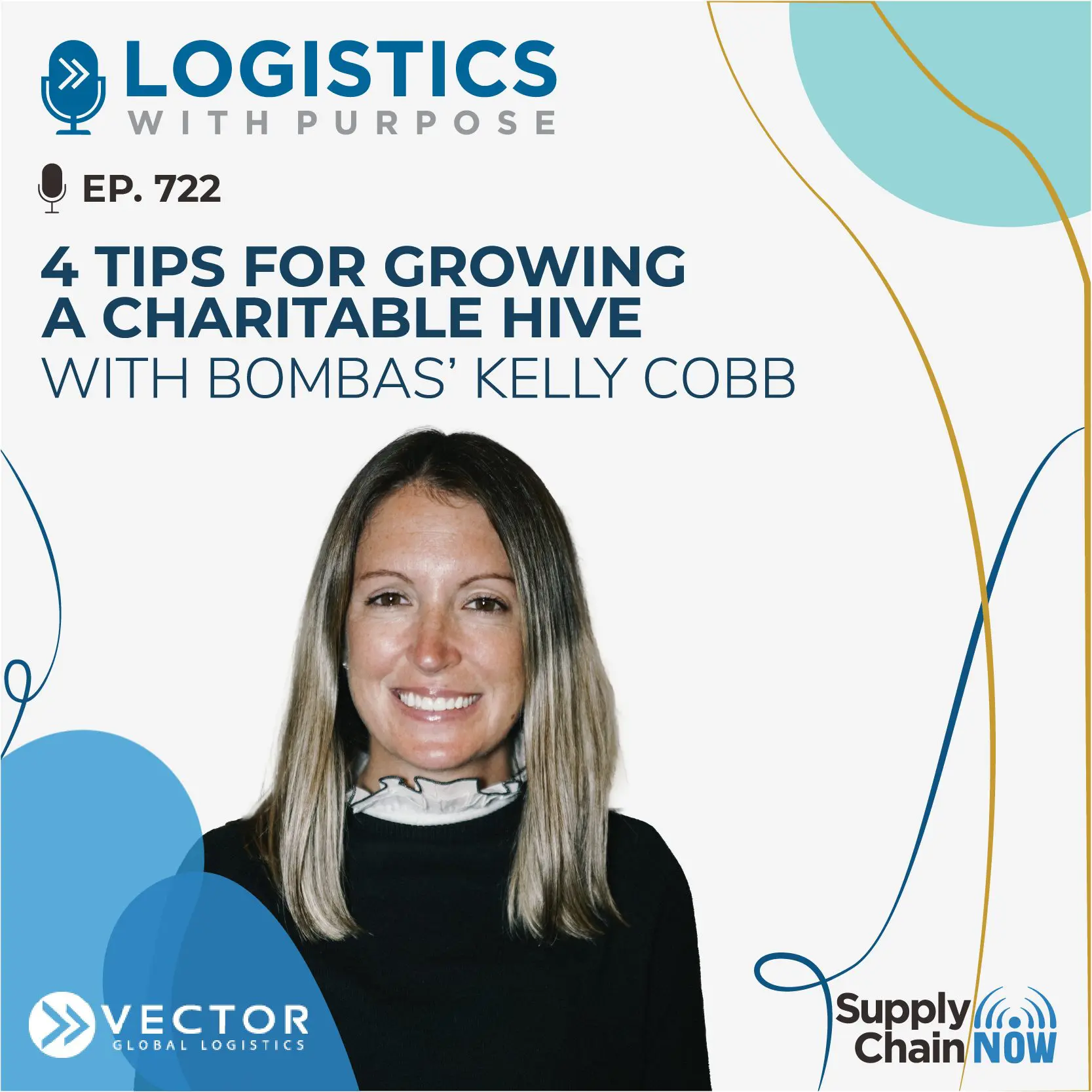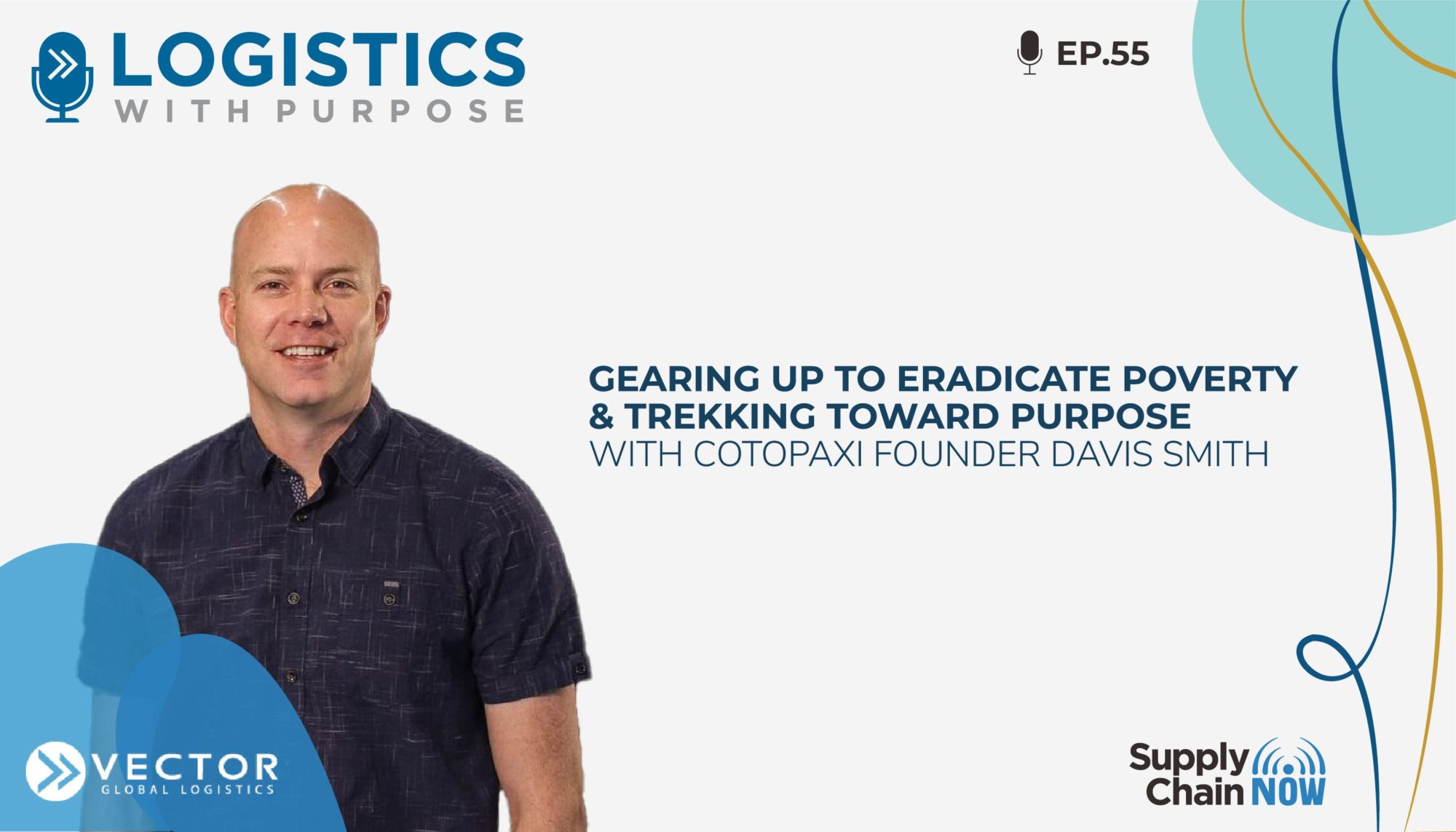
We're not a jacket company. We're part of a movement of doing good. And we're an organization that is focused on fighting and eradicating poverty in the world. And we do that by making really fun outdoor gear.
-Davis Smith
Episode Summary
After launching two businesses and snagging his MBA from the Wharton School of the University of Pennsylvania, Davis Smith was ready for something different. So why not change the world? Drawing from his childhood family adventures across Latin America, he launched Cotopaxi to eradicate poverty through unique, sustainably sourced outdoor gear. Don’t miss this chance to hear the whole story as Enrique sits down with this fascinating world traveler and change maker.
Episode Transcript
Intro/Outro (00:02):
Welcome to logistics with purpose presented by vector global logistics in partnership with supply chain. Now we spotlight and celebrate organizations who are dedicated to creating a positive impact. Join us for this behind the scenes glimpse of the origin stories, change making progress and future plans of organizations who are actively making a difference. Our goal isn’t just to entertain you, but to inspire you to go out and change the world. And now here’s today’s episode of logistics with purpose
Enrique Alvarez (00:34):
Good afternoon, and welcome to another very exciting episode of logistics with purpose. My name’s Enrique Alvarez today my guest, this an incredible person with a great trajectory and me personally, a big fan of his brand, his company, and he has done, he has managed to not only work with, uh, multiple organizations to make APositive impact in the world, but he has also, uh, started founded a really cool outdoor gear company. So without her to do Davis Smith, founder and CEO of coax Davis, thank you so much for being here. This is a pleasure.
Davis Smith (01:09):
Yeah. Enrique. Thank you. Thank you for having me. This is exciting.
Enrique Alvarez (01:12):
I never ask you if you actually spoke some Spanish, by the way, during the pre-show.
Davis Smith (01:16):
Oh, I do speak Spanish. Yeah. I, uh, I could
Enrique Alvarez (01:19):
Have done this in Spanish then
Davis Smith (01:22):
The audience might be a little different, but, uh, uh, yeah, so I, I moved to Latin America when I was four years old and, uh, I’ve spent all my childhood and into my youth there and then a lot of my adult life, uh, back in Latin America. So I moved, I moved to the us about eight years ago, uh, from south America.
Enrique Alvarez (01:40):
That’s awesome. And well, again, thank you so much for being here. I’m sure that, uh, just like me, there’s tons of huge fans of you and your brand and what you’ve been doing, uh, among supply chain professionals. So thank you for doing this. And before we kind of like deep dive into your successful career and, and, and your company, could you tell us a little more about yourself and how your kind of upbringing kind of look like?
Davis Smith (02:03):
Yeah, absolutely. Um, you know, as I mentioned, uh, my family left the United States when I was four. Um, my dad had been, uh, he’d been a Mormon missionary, uh, missionary for the church of Jesus Christ of latter saints when he was 1920 and 21 years old, uh, down in Argentina. So he spoke Spanish and then he came back, uh, after his two years, uh, of, of mission work, he came back to the United States and, um, went to college here, met my mom and, uh, started his own, his own business, uh, as a builder. And eventually he, he heard of an opportunity to move to Latin America and take a job, uh, where he could, uh, uses Spanish. And he thought it’d be really cool for his kids to grow up in a different part of the world. And so, uh, that’s how I ended up growing up.
Davis Smith (02:49):
I spent all my childhood into my teenage years living, uh, living abroad and, um, you know, my dad, uh, I think actually in the pre-show we were, we were talking if he about like your, your dad and his love for the outdoors and, uh, which I was shocked cuz you know, you grew up in Mexico city, right? How many people in Mexico city grew up kayaking and, and backpacking and camping and rock climbing. Um, uh, similarly my dad loves the outdoors and um, so we, you know, we always had some crazy adventure play land. Um, he would, uh, you know, we went and floated the Amazon river on a self-made raft and we’d fish for Piran that’s, that’s awesome. Uh, you know, we’d go survive on little uninhabited islands. Uh, when we lived in Puerto Rico and the Dominican Republic in the Caribbean, we’d go on these little islands and we’d make our own Spears and we’d spear fish and eat coconuts to survive.
Davis Smith (03:38):
Uh, you know, I, I, I grew up just loving the outdoors and you know, but I think more importantly, I, I developed a deep sense of empathy for others. And um, one, you know, one of my earliest memories as a child was seeing children three or four years old, my age completely naked on the sides of the street. And you know, at that young age, you know, trying to reconcile why my life was different. And you know, what I learned from that, from that very young age was that, uh, I wasn’t special. I, I wasn’t smarter or harder working or more deserving. Uh, I was simply born in a place that gave me opportunities that uh, these other people would never have. Um, and from the time I was a kid, I knew that this is what I wanted to spend my life doing. I wanted to spend my life using whatever talents I had to lift other people.
Enrique Alvarez (04:28):
And it’s unbelievable. Right. It’s well, it’s amazing that you so early on you actually kind of knew what you wanted to do and you weren’t exactly sure exactly how that would look like I’m guessing, but, but you, you had this deep breathed sense of helping others. Um, how many siblings are you in your family Davis? Cause you mentioned your brothers.
Davis Smith (04:45):
Yeah. There’s a lot of us. There’s eight of us, so I’m
Enrique Alvarez (04:48):
Awesome.
Davis Smith (04:49):
Yeah. I’m the second of eight siblings. So I have an older brother and then I have three sisters right after me and then three younger brothers and so pretty, pretty good, you know, big spread of ages. My youngest brother, uh, is just finishing, uh, law school right now. And uh, so you know, we’re, uh, we’re a pretty close family though. We, we spent a lot of time together still and um, you know, a bunch of us are kind of spread around, uh, around the United States, but we still find ways to get together pretty frequently.
Enrique Alvarez (05:18):
No one, no one, uh, remained in Latin America, south America at this point,
Davis Smith (05:22):
You know? Uh, no one’s there currently. Uh, but we’ve, you know, we’ve had some of us living down in Latin America at different times, but right now we’re all back in the United States. And I think some of us are anxious to get back at some point, but we’ll, we’ll see what happens.
Enrique Alvarez (05:36):
I read somewhere and you actually, uh, uh, mention it a little bit, like you have this trips through the Amazon jungle or river and you were trying to survive I guess, or, or, or just use your own means to survive. I read somewhere that you just recently had a trip like that with your dad and your brothers as well. Right. So this is like an ongoing thing. It’s not something that happened in your childhood. You still do all those crazy trips.
Davis Smith (05:57):
We still do it. Yeah. A couple weeks ago. We, uh, we just got back from a trip where we spent a week, um, surviving. So yeah, we, uh,
Enrique Alvarez (06:04):
That’s awesome.
Davis Smith (06:05):
Yeah, we got a couple little tiny little sailboats. They fit about three to four people in your gear, no outboard engine or anything, tiny little boats. And we got two of ’em when we just sailed from island to island and, uh, you know, we sped and ate fish and stingray and uh, um, you know, ate lobster and con and it was, it was awesome. We lost a few pounds, which is always a good thing, especially when you have some COVID weight, you know, it’s like losing a pound or two isn’t bad. So we had a really nice time together.
Enrique Alvarez (06:36):
It’s sound. It sounds amazing. And one of those, uh, live changing trips and experiences, but going back to your, to your childhood, so very early on, you kind of knew that you were basically lucky right. To have all these opportunities, but, um, tell us a little bit more, I mean, anything else that you, that you can remember from, from those early years, uh, with your dad, your, your siblings, uh, I, and where, where in south America were you at at that time? Was it Ecuador?
Davis Smith (07:01):
Yeah, so we were, we, you know, we started in the Dominican Republic. We lived there for a few years. Then we moved to, to Puerto Rico where we lived for five years, then we moved to south America. Um, so we lived in Ecuador, um, during part of my childhood and into my teenage years. And we lived in keto, which is the capital city, uh, uh, high up in the mountains, uh, beautiful, beautiful part of the world, amazing people. And you’re surrounded by these snow capped mountains all around. Um, so we’d, we’d spend the weekends going and climbing mountains with my dad. And, um, you know, it was a really, I, you know, it was a really important part of my childhood and, you know, the Cotopaxi was a of big volcano outside of keto. And we, we spent a lot of time at that mountain, uh, as a family camping and with my dad and brother. Um, so, and then the school I went to was called academia, so named after this volcano. And so, you know, when it, when I had the idea to build this brand and I had to choose a, I knew I wanted something that was connected to Latin America, where, you know, where I grew up and that was connected to this, to the adventure and this love for the outdoors. And so that, that name was, uh, a special name for me. So yeah,
Enrique Alvarez (08:10):
It’s a, it’s a cool, strong, short name. And, and, and of course the Lamas also make the whole thing flow and I, I love it. I mean, I, it, it makes sense. And before we get into that, I know that everyone that might be listening to this already itching to get into kata PAX. And how did it happen? Why, but after that, so tell us a bit more about your, uh, professional career at that point. You knew that you love nature. You were with your siblings and, and dad doing all this, uh, great adventures. Yeah. And then what did you study? What do you want to what happened next?
Davis Smith (08:41):
Yeah, so, uh, you know, I, I went to college at, at BYU in Utah, Brigham mill university, and I took two years away from school to go down, uh, and be a missionary myself. I was a missionary in Bolivia, uh, which is, uh, now has become one of my favorite places in the whole world. I, I go back to Bolivia every few years and meet up with my friends there. And, um, I have, you know, I lived in little communities all around Bolivia and I just, I try to go back to all these little cities I lived in and reconnect with the people. And, uh, it’s just a really special place. But after those two years, I came back and, and, you know, for two years, you know, uh, as a 19 to 21 year old, you know, usually at that age, you’re pretty focused on yourself.
Davis Smith (09:21):
You know, you’re trying to figure out what you’re supposed to do in life, and you’re in college and it’s really all about you, but when you’re a missionary, it’s the opposite. It’s, it’s never about you. And every single day is about other people. And it was a really great process to go O through over two years where you, you kind of strip out a lot of that thing, a lot of those feelings that you might have at that age, uh, that are more self-centered. And when I got back, um, I mean, I was overwhelmed with joy to see my family again, uh, to be back home. And, uh, as we pulled up to my parents’ home after they picked me up at the airport, um, you know, as we’re pulling into my neighborhood and up to my home, um, I just, I, I was overwhelmed with almost like a feeling of guilt.
Davis Smith (10:05):
Like, why do I get to live here? Uh, what have I done to have this life when these amazing people that I just loved were, were living in extreme poverty, many, many of them on, under a dollar a day. And so I became really committed when I came back from those two years that I was gonna find a way to help. And so when I was in school, I started studying international studies. Um, I kind of suspected I’d work in the nonprofit world. I thought that might be an obvious place for me. Uh, kind of thought, maybe I’d go into law school and somehow using law to like, make a difference somehow. And, uh, I was doing an internship in Peru, uh, working for a nonprofit when I met an American businessman. And, uh, I started talking to him and we just became friends. And in fact, we still are in touch that with that, you know, we, we got together just a few months ago and, but he was, you know, he encouraged me.
Davis Smith (10:55):
He’s like, you know what, every lawyer that I to, they don’t love their lives. He’s like, you should, you should think about business and, uh, and maybe start thinking about business, but it’s like, how do I, how do I use business to, to help anyone? Like, I’m not, not exactly sure how to do that. And, but it kind of got my, my mind kind of thinking a little bit differently. And when I was in, in college, I met a man, a mentor who, uh, this man who had become, uh, he’d been a successful entrepreneur and then started a school in the Philippines, teaching entrepreneurship, uh, to people that, to, to get them out of poverty. People lived in extreme poverty and he dedicated his life and, and his, and his fortune to using it, to help other people. And I decided I needed to work for him. And I tried to convince him, let me work for him. And instead he convinced me that if I really wanted to make an impact, I shouldn’t work for a nonprofit, but that I should become an entrepreneur. And so, um, that’s the path that I ended up going down. So I, when I graduated, I started my first business and, uh, it’s been almost, almost 20 years now that I’ve been, uh, an entrepreneur
Enrique Alvarez (11:56):
Well, and before we touch a little bit on that first venture, and then the second one, which, uh, I think it might be more interesting as well. Uh, couple of us, couple of questions, real quick, Mr. Burn, uh, who is he, Mr. Uh, I’m probably pronouncing his last name incorrectly, but I think, uh, he was one of your teachers at some point, Mr. Beki or,
Davis Smith (12:16):
Yeah. How do you know about, how do you know
Enrique Alvarez (12:18):
About him? I tried to do my homework cuz you’re I admire what you’re doing. So I, I read it some somewhere I’m like, this seems like a really interesting story. Uh, I, so who is he and what did he teach you?
Davis Smith (12:31):
Yeah. You know, so, uh, so it’s interesting. I had, when I was in, when I was in Ecuador, I went to a school that I mentioned, academic Oxi, where, uh, an international school where you have, um, you know, classmates from all over the world. My best friend was from Denmark. Uh, I had all sorts of friends from all every country in Latin America, from Asia. So it’s this really diverse, multicultural experience. And your teachers are fascinating. You know, they’ve lived, they’ve lived all over the world and they’ve, they they’re, they’re teaching there because they love adventure and they love teaching. And, um, they love cultures and languages. And, um, I actually had a, a teacher. Her name was, uh, Mrs. Beski and her husband was also, uh, a teacher there. And he, I was the, the vice principal of the school as well, but, um, Mrs Beski was amazing.
Davis Smith (13:19):
And she, I, it was partially through her that I really developed a love for geography in the world. And, um, she’d previously lived. They, her and her husband had lived in Africa before. And, uh, I loved hearing about the stories there and her, and, you know, for that class, for that class, we had to like memorize, um, all the countries in the world and geo, you know, geographical features, mountains and rivers. And I still, to this day still remember all sorts of crazy GE you know, geography facts from that class. It just stuck. It just stuck in my head for some reason, but I love, love the world. And, uh, you know, sadly Mr. Beki died of cancer a number of years later, as, as a very young man, he must have been in his forties. And, uh, but Mrs Beki and I have stayed in touch and, uh, you know, she’s, she’s just an amazing person.
Davis Smith (14:09):
She lives in Texas now. And, um, you know, she was, I remember she was pregnant when she was my teacher and she ended up, uh, her son, uh, that was born there. He he’s gone to Stanford and is just a really, really bright kid. And it’s just really fun to kind of, it’s fun to reconnect. I have a few teachers that I’ve stayed in touch with over the years from elementary school, through high school. And those are really special relationships, relationships for me, you know, they, those teachers help shape the path that I’m on. And so I’m just really grateful for, for her and for all the teachers that I’ve had along the way.
Enrique Alvarez (14:41):
It’s, um, probably not something everyone can say, right. Keeping, keeping in touch with their teachers. Uh, but it sounds like it has, has worked incredibly well for you and has given you that kind of grounding and kind of, uh, knowledge of where you come from and what you’re trying to do. So I, thanks for sharing the story and just jumping back to, to where you were before I sidetracked you with this question. Um, so you graduated and you decided that entrepreneurship was your thing first venture. What, what was that first venture?
Davis Smith (15:12):
Yeah, so a very random business. You know, my, my cousin and I, uh, were the same age we’d been close. You know, when I lived in, in Latin America, his family would come down and visit us. And, and every summer I’d come back to visit my grandparents in the United States and I’d see him. And when we were in college, we became really close and we’d share kind dreams together about what we’d wanna do. And we both kind of had this entrepreneurial bend and we started talking about what if we started something together and we both started brainstorming a bunch of ideas and we dabbled in a few different ideas. But one idea that had come to me through talking to a, a friend was an idea of, uh, of starting our own business, selling pool tables, uh, which is incredibly random. I don’t even really play pool.
Davis Smith (15:55):
Uh, you know, my, my grandparents had a pool table in their home, so that was kind of the extent of my, my knowledge of pool tables. But, um, you know, I had the idea and I, I went on, uh, eBay and I started tracking the sales of, of other brands selling pool tables. And, uh, you could walk all the listings. So I kept a spreadsheet where I just tracked every single listing and what the product sold for. So after a few weeks, I had a, you know, some data of like what product could sell for. And then I started Googling, uh, pool table factory. China found some factories in China that made pool tables and started getting some pricing. And so I had a good sense of what I could them for and what I could sell them for. And, um, so we ended up creating a listing and we, we, uh, ended up starting to sell pool tables on eBay. And, uh, I, I had just taken my first job. I just graduated and I’d taken a job for a company that I’d done an internship for in the Cayman islands. They, they had a, a, a corporate office here in Utah. So I was working for them. And on the side, on, in nights and weekends, I was selling pool tables on the internet. And, um, we ended up doing a million dollars in sales our first year. So like the business,
Enrique Alvarez (17:05):
Oh, that’s amazing.
Davis Smith (17:06):
It worked, you know, so about six months in, uh, I ended up quitting my job and, um, my cousin and I just, we put everything into this little business and, um, you know, we, we just bootstrapped, it, it wasn’t something that could get venture capital or anything. And we borrowed money from anyone we could get money from. We came from very middle class homes, so we didn’t have a lot of money or access to capital, but, you know, we ended up getting my parents and my in-laws to, to mortgage their homes, which helped us finance the business us. And that was very stressful. But, um, after six years we ended up selling the business and we, we went to business school. Um, my, my cousin went to Harvard business school and I went to Wharton. I’d always wanted to go to Wharton. Uh, they have a program there called the water Institute, which is a dual degree, an MBA. And I did an ma in international studies with an emphasis on Latin America. So, um, it was, uh, it was the only place I applied and I was just, I felt so lucky to get in. And, uh, it, it was one of the best decisions I ever made to go back to school
Enrique Alvarez (18:05):
Also. Perfect timing. Right. I mean, right after you sold your first company, you come in with all this amount of knowledge and experience, especially in your case. Cause you’ve been living all over the world or not in America. Uh, sounds like a great story. And now are you good at pool?
Davis Smith (18:20):
No, I’m not very good.
Enrique Alvarez (18:24):
Your background’s all about, uh, exploring and hijacking and I’m like, you’ve got a pool table company. I’m like, wait, what, that’s the, that’s the opposite of nature and outdoors that
Davis Smith (18:35):
I know, I know it’s, it’s a very random thing. You know, the interesting thing about that business, you know, we sold it over a decade ago.
Enrique Alvarez (18:42):
That’s awesome.
Davis Smith (18:43):
But, uh, I ended, we kept a little bit of ownership in the business and after after 10 or 11, 12 years, uh, the guy that we’d sold it to, he was in his sixties. And, uh, last year he contacted us and said, Hey, I’m, I’m gonna sell the business. I just wanna let you guys know. And, uh, he found a buyer, a small public company that was gonna be buying the business and he’d grown revenues. Uh, it was maybe double the size that it was when we sold it. Wow. Um, so not, not a lot of growth over 10 years, but it was, you know, it was a little bit bigger. Um, and at first I was happy, you know, thinking great, good for him, you know, I’m glad good for him, glad he’s selling it. And, um, and then the more I thought about it, it was like, you know what, I need to buy this business back.
Davis Smith (19:24):
And so, uh, I, I ended up buying the business back and so I paid a lot more. I paid a lot more for it than I sold it are, but, uh, I, I converted it to a benefit corporation and we’re using the business to fight poverty. And, uh, the interesting thing is it’s very different from the current business that I have because, uh, you know, it’s, it’s not venture capital backed. It’s just a, you know, small business, but it’s, you know, maybe 13 million in revenues last year and we’re, we’re growing. It, it, uh, it’s been profitable for 18 straight years and it’s, you know, it’s, it has the ability to go make an impact. And so, uh, I’m really excited about that. I went and hired a CEO, that’s running it and, um, I’m chairman of the board. So we, we connect each week and we put together a plan in place to grow scale the business, and I’m having a lot of fun with it. So that
Enrique Alvarez (20:11):
Sounds like story. And I’m glad that you kind of close the loop by buying it back. And, uh, I’m sure it’s gonna be successful, like, uh, tons about things that you’ve done. You mentioned something about, uh, the B certification, uh, B Corp for people that are listening to us. What, what is that? I mean, it’s not like an LLC, it’s not like an S Corp. You convert it to what, what is this that you talked about?
Davis Smith (20:34):
Yeah, so, uh, so there’s a couple different terms that people use and they’re used kind of interchangeably a lot of times, but they actually are different, which is, uh, benefit corporation and B Corp. And, uh, the difference is that a benefit corporation or sometimes referred to as a public benefit corporation is a legal entity, similar to an S Corp or a C Corp or an LLC. Like you mentioned, uh, it’s a legal status it’s of, of a business, but where you’re committed, uh, to looking beyond profits. And so, uh, we’re, we’re registered in Delaware. So we’re required to report every couple years, uh, what our impact has been. And, uh, my job is to not just maximize shareholder value. It’s also to think about the impact that our business has on people and planet. Um, so that’s what a benefit corporation is. Uh, B Corp, uh, is similar.
Davis Smith (21:22):
Uh, but it’s actually not a, it’s not a legal status of a business. It’s actually a certification that you get as a business, through an organization called blabs and blabs, uh, will come in and they’ll do an audit of your business. And, uh, if you meet certain standards, which is pretty rigorous, not easy, but you, you can become a certified B Corp. And so, uh, you know, coax the business I’m running now is both a public benefit corporation and also a certified B Corp. Um, the pool table business, I, we converted, uh, legally to a public benefit corporation. And we’re in the process of working towards becoming a certified B Corp, which will probably take a year or two to kind of get to that, through that, through that
Enrique Alvarez (22:03):
Process. It’s a, it’s a, it’s a talk certification process for sure, but, uh, but not a lot of companies can go through it and it really, really highlights and, and showcases, uh, the commitment that you and your company has to, to giving back. And, and as you said, kind of looking beyond, uh, shareholder values. Um, so now the second, so you saw that went to business school, and I read also that you started the second company, uh, and I guess things didn’t go as, as, as, uh, as well as in the first one, but can you tell us a bit more about that one?
Davis Smith (22:38):
Yeah, so the, well, no, when I was in business school, my cousin and I decided, you know, let’s, let’s do this again. Let’s try, let’s try to start another business together. And so, uh, we spent the first year in business were just coming up with ideas. We came up with 60 ideas. Uh, we spent the summer, uh, between business school, going through the ideas and identifying the idea that we wanted to go spend the next few years on. And, uh, we landed on the idea of going down to Brazil and starting a business there, uh, called baby.com.br, which was an e-commerce. The idea was to build an e-commerce company, selling baby products. There’s 200 million people in Brazil, a large emerging economy, uh, at the time in 2010, about 40% of the, of the country had internet access. So, yeah, it was, uh, kind of at this tipping point where it was like, there were enough people online to create an eCommerce business, but it was pretty new and nascent.
Davis Smith (23:26):
So there weren’t a lot of comp, you know, there wasn’t a lot of competition. Uh, so, uh, you know, we went and raised some venture capital, uh, while we were students, we raised 4.3 million, and then we moved down to Brazil at graduation. And then within 18 months, uh, we’d grown from four employees to 300, uh, we’d raised over 40 million in venture capital. It was our first time raising venture money. And, uh, in some ways it was really exciting, uh, seen a lot of growth. Uh, and in other ways it was incredibly difficult. Uh, Brazil is a very complicated and difficult place to build businesses. And, uh, um, you know, the business was, uh, just, we weren’t finding a way to, you know, the business was, was struggling to get to profitability. It was growing rapidly though. Um, and, uh, after about three years, uh, you know, my cousin and I, uh, Brazil was kind of at its at its pinnacle. It was really kind of an exciting,
Enrique Alvarez (24:24):
And you were in south or we’re in Brazil.
Davis Smith (24:26):
Yeah, we were in south Balo. Yeah. Uh, which was a really great, it’s a great city,
Enrique Alvarez (24:30):
Beautiful country, beautiful country.
Davis Smith (24:32):
It beautiful
Enrique Alvarez (24:32):
Country, great people. Yes, for
Davis Smith (24:34):
Sure. Great people, great food, beautiful beaches. Uh, I mean, just so much potential as well. You know, the challenge, the challenge though, is that, uh, you know, Brazil, like a, unfortunately like a lot of Latin America and a lot of the developing world is very corrupt. And, um, you know, we, we’ve made a commitment that we weren’t going to pay bribes. Uh, we, we paid our taxes, we did everything by the books and that just wasn’t the norm. And so honestly it, we were disadvantaged, you know, compared to our competitors that maybe, you know, hired people, you know, kind of on, on the fringes that like where they didn’t have to pay the taxes or they just didn’t do things quite right. And, um, you know, it’s, you know, when you’re not willing to pay bribes, it slows processes down, especially in a country with, with so much bureaucracy.
Davis Smith (25:24):
Um, so there were a lot of unique challenges about Brazil and, uh, it, it also, um, you know, there was some, it ended up being some strains in the, in my part, my business partnership, which is, you know, painful to talk about. But at the end of the day, I made a decision that I was, I needed to do something different and I felt very compelled to go build something that was about giving back. And, um, I ended up making the decision to leave Brazil, which was very, a very difficult decision. And I was, I was pretty scared to do it, to leave. Um, I wasn’t sure, you know, the equity that I had in the business was pretty meaningful. Uh, and the business at that time had just raised a big round of capital. Uh, and while we had some real challenges ahead of us, it seemed like there was a lot out of possibility.
Davis Smith (26:09):
Right. Um, but I made the decision to leave and, um, you know, shortly after I left, I came back to the United States to build Cotopaxi Brazil’s economy, really hit a wall and, uh, massive recession. And it ended up making the business that much harder. And so at the end of the day, you know, years later, the business didn’t end up where, and, uh, pretty disappointing outcome, especially for my cousin, who’s put so many years into it. Um, but, uh, you know, I think, you know, having as an entrepreneur, having a failure, having something that didn’t go right, and they had it, you know, a lot of pain involved in it. Um, I think as, as much as I wish I wouldn’t have had those painful experiences, they really help you and they define you and they keep you humble and, um, they help you do it better the next time. And so I, I learned a lot from that experience.
Enrique Alvarez (26:58):
Thank you. Thank you for sharing and yes, absolutely. Right. Very powerful words. Uh, uh, not everyone kind of goes through the kind of pain that you probably experienced, but, uh, but I’m glad to hear and see that you came stronger out the other end. Um, and hopefully the same, same, same happened with your, with your cousin. Um, now you came back a little bit disappointed. You’ve been into the pool tape industry to the baby food industry. Yeah. Now let’s talk about cut back. So how, how did you get back to, Hey, listen, I, I love nature. Why don’t I do something with nature?
Davis Smith (27:34):
Yeah. So, you know, while I was in Brazil, um, you know, every single day was a reminder of the things that I was most passionate about and really it came down to like, I wanted to find a way to help people. And, you know, I drove every single day as I drove to work. I drove through a fave, a, a Shandy town. And, uh, it was in Brazil as I, I, I actually made a new year’s resolution in 2013 that I wanted to change somebody’s life. And I wasn’t sure how to, to do that. And it wasn’t honestly, it wasn’t a great goal cause it’s not like super specific or measurable in any kinda way, but it was like, it was kind of, I guess, the desire of my heart. And so I had this, this new year’s resolution. I had to post an note on the mirror in my bathroom and every night I’d see it and every morning I’d see it.
Davis Smith (28:19):
And, um, as I was laying in bed one night, thinking about how I be able to make a difference, I ended up having some ideas that started coming to my mind and I ended up getting out of my bed and I sat on the couch and I spent the entire night there, um, the entire next day and the entire following night. And, um, I was just in this flow. Uh, I honestly, it was like, it was a spiritual moment for me where I just felt connected. Um, I’m a spiritual person. I felt connected to God. And I felt, I felt he was guiding me in the work that I needed to do. And honestly, at that point in my life, I was feeling pretty disappointed and discouraged. I’d felt like I’d spent, you know, 10 years of my life building some businesses. And it was like, this is not that fulfilling.
Davis Smith (29:04):
It’s like, what am I doing? That’s like, I’m not making any difference in the world. And I felt like I was maybe a sellout that I wasn’t doing what I always known I needed to do, but at those, you know, those 36 hours, uh, I kind of realized that I needed those experiences. I needed those experiences to be able to go do what I needed to do next and, um, had the idea to build this new brand. Um, and it was built around not just an opportunity. The other businesses were kind of an opportunity to go chase. This one was truly about a deep rooted passion, uh, a passion to help others. And I, I just knew, I knew I needed to build a business that could use its profits to sustainably fight poverty. And I very quickly landed on an idea of building an outdoor brand.
Davis Smith (29:49):
Uh, it was an area that I felt deep passion around. I knew the space, uh, as a consumer and felt there was an opportunity what was very crowded and there’s a lot of outdoor brands. Um, I did feel like an opportunity to build a brand that no one else had done before, which is a brand built around people and not just the environment. And I feel, I, you know, I feel very passionate about the environment as an outdoor lover, but I felt like that wasn’t the competitive advantage anymore. Everyone ha you have to think about the environment. You have to think about your impact on the planet, right. That was tables, stakes. Uh, I felt I needed to, to do something around people. And so, um, I moved back to the us and started building a brand. Well, I started pitching investors about this idea and vision of building a brand, uh, that was all about lifting people and using its business to, to change capitalism for the better to show that you can build a great brand while also doing good in the world. And so that was my vision for, for what I wanted to build next.
Enrique Alvarez (30:42):
That’s, uh, that’s incredible as well. I mean, when you were down thinking through what the next venture will be, I’m guessing you still have the support of your dad, your brother mean everyone was still there with you. I’m guessing were there that you had any kind of mentors or anything that you remember that someone might have say that maybe can help, uh, other people, uh, out there that might be listening to us, kind of go through those difficult times that, that as entrepreneurs, uh, you will have, and, and you, you often have, what would be your suggestion? How do you get out of that kind of hole? Uh,
Davis Smith (31:16):
Yeah. Yeah. Cause I, I, I was in a hole. I mean, I was, uh, I don’t know if I was like clinically depressed or not, but I, I definitely was feeling some depression. Um, you know, just with this relationship that meant so much to me, with my cousin, you know, we, we built homes on the same street before we traveled and vacation together. We built businesses together. We were best friends. And so to lose that relationship was very, very painful. And, um, you know, so I was in a, I was definit in a funk and I think it really came down to a co this wasn’t something I felt I could talk about with people. Um, right. You know, it was really kind of a really private matter maybe. And, um, I, I, I’m still not very comfortable talking about it obviously, but, um, at the time, like I felt like I really couldn’t talk to anyone about it.
Davis Smith (32:01):
And so I really could, and my wife and, um, she was really my greatest supporter and she encouraged me and believed in me and was willing to take the risk again. And that was really, that was really probably one of the greatest supports. And then I had another very dear friend of mine, um, who had also who knew what I was going through. And he was so an entrepreneur and, uh, he was very encouraging and encouraged me to, to break away and to have the courage, to go do something on my own. And so that was, that was really helpful. Um, and then of course, you know, you have your extended family and others and, uh, you know, I felt a lot of support from them as well, but I think those, those two individuals really were what helped me find the courage to go off and, and try something on my own.
Enrique Alvarez (32:51):
Well, thank you once again, for, for sharing and, uh, for all of those people that are out there as still to the, to this point in the conversation, don’t know what Cotopaxi is. Maybe I should have asked this question before, but so what is Cotopaxi? Uh, and then we’ll deep dive into what the company stands for and what they do. And some of the future plans that are all very exciting, but what is Cotopaxi?
Davis Smith (33:12):
Yeah, I’d say, you know, from the outside, if you looked at Cotopaxi, you’d say, okay, I, I get it. This is a brand that makes outdoor gear. You know, they make backpacks and jackets and tents and sleeping bags. Um, but the reality is that we’re not a backpack company. We’re not a jacket company. We’re, we’re part of a movement of doing good. And, uh, we’re an organization that is focused on fighting and eradicating poverty in the world. And we do that by making really fun outdoor gear. And so, um, you know, that when we launched the business, we launched with, uh, five backpacks and we, we turned on our website the day that we also held an event called that we called the Questival, which was this 24 hour adventure race. And, uh, we, we, you know, people knew about the adventure race because we bought two Lamas on the online classifieds.
Davis Smith (34:01):
And we took these LAAS around college campuses and around Utah, where we were launching the brand. And, uh, all these young people were like, wait, why are LAAS on campus? And we’d tell them about this new brand and this, this 24 hour adventure race where you could go build a team and you could go choose your own adventure. Uh, we’d give you hundreds of challenges to choose from. You got points for completing different challenges. And the winner, the winning teams would get trips and gear. And, uh, it was just an amazing way to go launch this brand. We had thousands of people participate in that first launch event. Uh, we had 30,000 social media posts of people out adventuring in the outdoors with their friends, uh, of, of giving service in the community. And, um, you know, again, it wasn’t just about selling things. It was about creating this movement around rallying people around a cause and a mission. And I think that’s why so many people have felt connected with our, with our brand and why they wear Cotopaxi products and, and, and support us is because they feel a connection of their are values with ours.
Enrique Alvarez (35:03):
I love that. Not selling, but creating a movement. Yeah. That’s what that was business I should be about, I think. Um, but do you still do this, uh, quest every year? Is it still like a, like a race, adventure race every year?
Davis Smith (35:17):
Yeah. You know, we’ve done about a hundred of the quests around the United States and Canada. Uh, um, we, we do not do them currently because of the pandemic we stopped. Right. So it’s been a couple years since we’ve done one, but, uh, they’ll be back. Uh, we don’t, we don’t have any specific dates yet. We’re kind of playing that by year, but we want, we wanna bring ’em back. They’re definitely a very, very fun events and a fun way for people to connect with each other and with our brand and, and with their communities doing good.
Enrique Alvarez (35:44):
So coax, not a, not a backpack sleeping back or gear company. It’s a movement it’s about helping people and you do help. A lot of people. I actually had the opportunity before this interview need to read the 2020 impact report. And if anyone has like 10 minutes out there and wants to read something inspiring, I would totally recommend that you do, and we’ll put it on the footnotes of this conversation. But, uh, tell us a bit more, so healthcare education, refugees, uh, poorest communities, not only in the Americas, but, uh, in other countries as well, you have have a something in the Ukraine now, how do you think about helping others? What’s the strategy, what’s the structure? Cause of course you can, there’s so many things that we need to do still. How do you, how do you think about, well, this is, this is in line with what we’re trying to do. This is not in line, although it’s a good cause. How do you prioritize your costs?
Davis Smith (36:37):
It’s good. You know, when we, when we started the business, the first year I oversaw the impact, um, not because I was an expert, but it, we were a small team and I was the one that was most passionate about it. And I knew a number of nonprofits over the years that I’d been a part of in some way or another. And we started supporting those. And then a year into the business, we hired a chief impact officer. And when she joined our team, she came in and she kind of sat down and asked me, okay, you know, what are you doing now? Uh, tell me all about it. And I, it turns out I was doing everything wrong. So I, I, I didn’t know how to have impact in the very best way. And, but she really helped us figure it out, which was, you know, being very, very disciplined about where you’re putting dollars. Um, sure. That you’re concentrated enough where you’re really having a, a, a true impact. And so we, you know, we decided to focus on education and healthcare and livelihood training, which we, we believe are three pillars, inextricably linked to poverty alleviation. Um, we work very closely with refugee communities, um, internationally, and also so in our local community here in salt lake city and, um, you know, last year, 2021, we haven’t released the impact report yet, but we helped 1.2 million people living in poverty. So, um, I’m incredibly proud of that
Enrique Alvarez (37:53):
Standing ovation for that. Cause that’s 1.2 million people.
Davis Smith (37:56):
Yeah. Um, it’s the thing I’m most proud. Yeah. And you know, most of that, uh, impact is happening in Latin America where I grew up and where the name of the company comes from. We do a lot of work in Ecuador, um, and in the Andy’s region. Um, so, uh, yeah, it’s my deepest passion. It’s what I wake up every morning thinking about and, uh, what motivates me every day to keep pushing on this. And, you know, I, I just believe that, you know, we can be one of hopefully thousands, tens of thousands of businesses out making an impact in the world. And I look at Anika what you’re doing with your business. And it’s like, it’s a great example, uh, of another amazing business quietly, just making an impact in the world. And so when we have businesses, you know, like vector and like Kopac, and, and many others around the world that are making an impact, that’s how we change the world.
Davis Smith (38:43):
That’s how we will eradicate poverty. That’s how we will truly make an impact. We can’t rely on governments and nonprofits alone. They can’t do it alone. And so that’s where we need to step up. And businesses have such a loud megaphone. They have such a loud voice to affect change. They have resources, um, that we can deploy to go make a difference in the world. And, and the, at the end of the day, if we do it right, it ends up being good for business too. Like people want to support and wanna work with other businesses and people that are focused on things that truly matter.
Enrique Alvarez (39:14):
Totally agree. And I think money will come if you make the right decisions for the right reasons and money should not be the goal. Uh, that’s something that just comes along the way. If you, if you work hard enough and, and focus on giving back and changing the world. So I, I couldn’t agree with you more, this has been an incredible conversation. I, I feel very connected with you and your, uh, brand. I actually want to the website, and I know that you’re about starting a movement, but I already also bought a couple backpacks cause, uh, they’re super cool. I mean, they, they look great like the colors and they’re also, uh, from, uh, recycled or repurposed material is the way they guys, uh, branded it on the website. So main thing, education, healthcare, refugee communi, and making people better. But you’re also, sustainability is also important for, for your company. Can you tell us a bit more about the sustainability green aspect of what Kubai does?
Davis Smith (40:05):
Yeah, absolutely. Yeah. So yeah, at the very core of our brand is people and fighting poverty, but you can’t do that if you’re destroying the planet at the same time. Right. So that’s something we know that we have to do, right? So 94 in two, in 2020, uh, we don’t have the data yet from 2021, but it should be somewhat similar. But in 20 20, 90 4% of our products were made of remnant and recycled material. So, uh, you know, we use, uh, in our factories, there’s a lot of other brands in the outdoor industry, a lot of brands that you can think of right now in your head, those brands use our same factory that we do. And there’s a lot of waste, a lot of, uh, remnants, you know, from the cutting and sewing process. And we decided to use those remnants in a, in a unique way, by going to the Sowers and we empowered the Sowers to design the bags.
Davis Smith (40:49):
We said, you can use any colors. You want any materials you want. The only rule is to make no bag alike. And so we have maybe 20 different styles or patterns, but every single bag will be 100% unique, uh, based on the color patterns and the, the materials being used. And so as you see the product, it’s definitely stands out, you know, you see it and you’re like, wow, like that is unique. And, uh, you know, when you write it, people stop you, they say, I, where did you get that bag? Like, that is really cool. Uh, and this is just a really powerful story of protecting the environment, but also empowering people, these amazing artisans and craftsmen in the Philippines where this factory is, and, uh, you know, giving them a voice in the creative process, which has been really fun and fulfilling.
Enrique Alvarez (41:30):
It’s, uh, again, amazing brand. I encourage everyone to go visit your website and learn a little bit more about you and your story and your team. It sounds like you have an amazing team as well, and a great culture to work for. Um, what are some of the future plans for coax? Where, where do you see the company? Is there anything that you’re currently pushing anything that you would like to bring attention? Do, um, could you share a little bit of that as we kind of close this very interesting interview?
Davis Smith (41:58):
Yeah. Um, we definitely have big ambitions for the brand. You know, we believe we can build the next iconic outdoor brand, uh, you know, a billion dollar business, but that’s focused on giving and focused on helping others. And, uh, you know, we’re doing that by building what we believe is a global brand. You know, when you have these values, these are values that transcend culture and languages and, and borders, uh, humans care deeply about each other. We care about looking out for one another and that’s really what makes us unique. And so we have empathy and, um, you know, when we build a brand and empathy and around giving and serving others and around protecting the world, um, that’s something that, that we believe is a, is part of this movement that, that we want the whole world to be part of. And so, um, you know, we’re, we’re opening physical retail stores. We’re selling online. We sell through, uh, about a thousand other retailers around the world as well. Uh, we’re mostly in the us, but starting to expand into some other, you know, in the EU in Japan and a few other countries around the world and hopefully more into Latin America sometimes soon as well.
Enrique Alvarez (43:03):
Excellent. Excellent. And I’m sure that you’ll be incredibly successful. Uh, the company’s already successful and here’s the mindset and, and passion that you kind of show, uh, just by tell this stories. Um, I, there’s no other result of someone and a culture and a team, so passionately working towards changing the world and success. So thank you so much. Where, where can people, um, find you what’s the best way to contact you your company, if anyone were to wanna reach out to you. And of course, please again, read the, uh, impact reports as soon as they come out. Uh, cause they’re very inspiring.
Davis Smith (43:39):
Yeah. Yeah. Definitely check us out. I mean, uh, you know, if Cotopaxi, Coto P a Xi, uh, dot com, uh, also on social media, you know, Instagram and Facebook, uh, personally, I I’m on LinkedIn. I’m, uh, pretty active on there. I mean, I try to post maybe once or, uh, once a week or so sometimes once every couple weeks, but I love sharing, uh, you know, learnings as a, as a, as a founder, you know, stories of, uh, startups and, you know, lessons I’ve learned along the way. Um, I love talking about impact. And so, um, definitely anyone that’s listening and, and wants to be connected, reach out to me on LinkedIn and, um, how happy to connect there and, uh, looking forward to, to following some of, all of your stories as well.
Enrique Alvarez (44:21):
Davis, thank you so much on behalf of everyone, the team at vector, the team at supply chain. Now this has been a pleasure kind of talking to you and, and getting to know you better. Thanks for sharing your story and account with all our support, uh, for you and coax to continue, uh, growing for everyone else out there. That’s listening to interesting conversation and interviews like the one that we just had, if you like, uh, what you’re listening to and people that we’re interviewing, please don’t forget to subscribe once again. This is simply about a, this has been another episode of logistics with purpose and thank you very much. Everyone have a good day.
Featured Guests
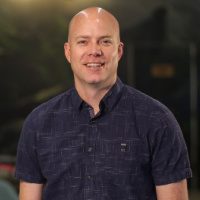
Davis Smith is the founder and CEO of Cotopaxi, an outdoor gear brand with a humanitarian mission. Davis has raised over $130 million in venture capital over his three start-ups and his current venture is backed by Bain Capital. He is a member of the United Nations Foundation’s Global Leadership Council and a Presidential Leadership Scholar. Davis previously started Brazil’s “Startup of the Year,” was Silicon Valley Community Foundation’s “CEO of the Year,” and is an EY Entrepreneur of the Year. Davis holds an MBA from the Wharton School, an MA from the University of Pennsylvania, and a BA from Brigham Young University. Davis is an adventurer who has floated the Amazon on a self-made raft, kayaked from Cuba to Florida, and explored North Korea. Connect with Davis on LinkedIn.
